





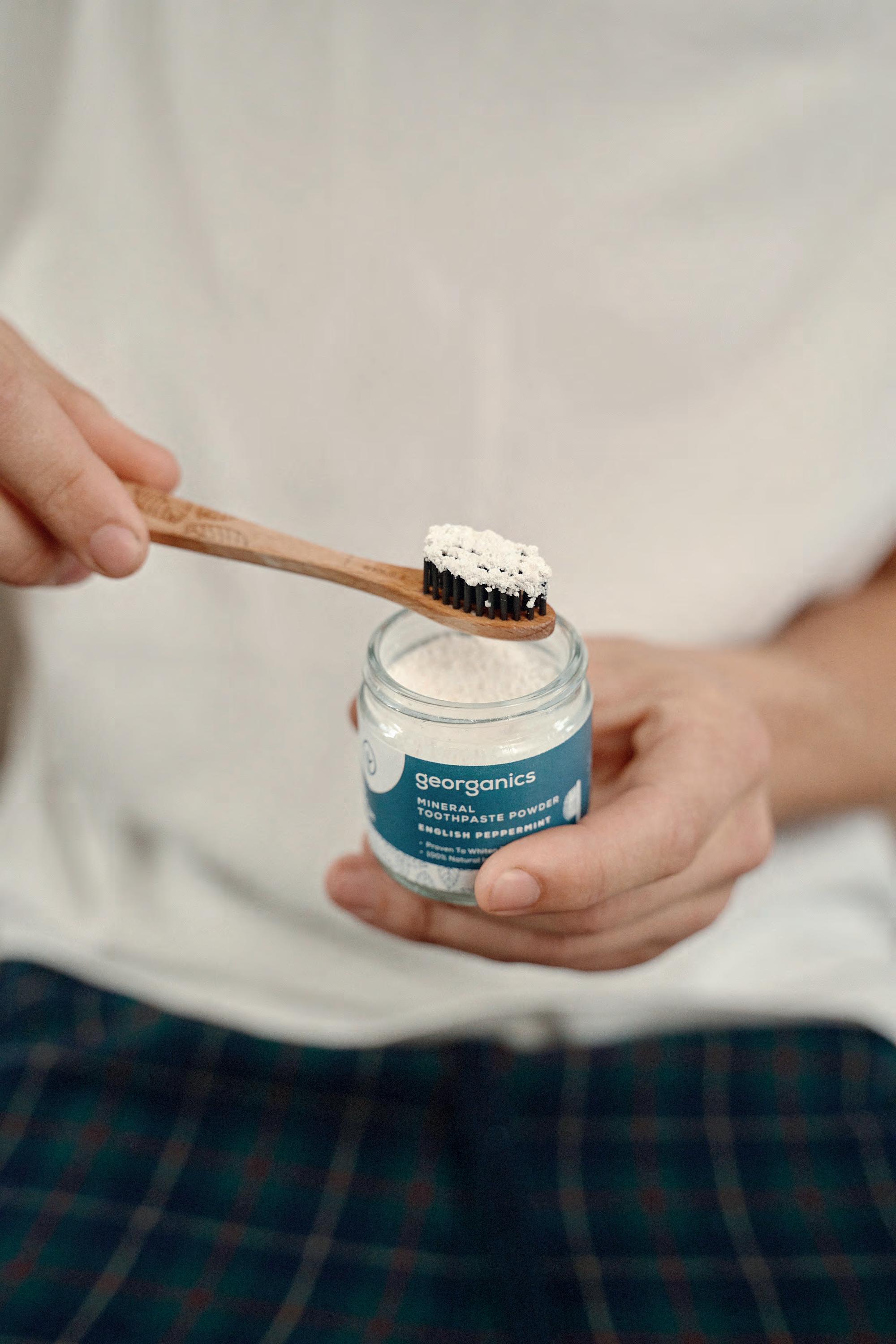

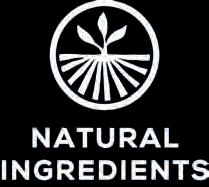





As we go to press on our second issue, our newly formed team fast expanding, I’m noticing themes of legacy and nostalgia dotted throughout the editorial. Several established brands and organizations you’ll be familiar with are celebrating rich histories and impressive milestones – from 180-year-old London retailer Baldwin’s, passed down through three generations, to biodynamic farming which is celebrating its 100th birthday, and Faith in Nature which announced a major packaging change to mark 50 years since Rivka Rose launched the business. Viridian Nutrition, too, has completed a quarter of a century; this month Cheryl Thallon serves an impassioned
opinion piece sharing why she channelled 40-plus years of cross-industry experience into bricks and mortar retail. What these businesses have in common is commitment to quality and transparency, ambition to add value to the industry they love, and drive to help people and planet so that future generations flourish. At Natural Brands we share this ethos, which is why we’re participating in Neal’s Yard Remedies’ new Pollinator Pathways map. I was honoured to be invited to Anabel Kindersley’s Bee Symposium last month, where she explained that even a window box will help save the bees. Our team has pledged our support to get planting – who’s with us?

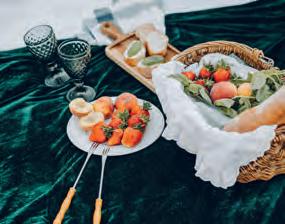

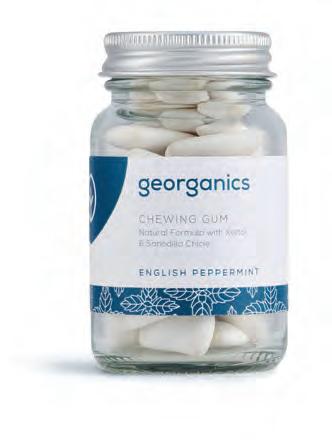

Anabel Kindersley, co-owner of Neal’s Yard Remedies, is doubling down on efforts to protect pollinators with a new campaign aimed at boosting bee populations, support for which she rallied at a Bee Symposium in June at Camley Street Natural Park, London
DESCRIBED by panel moderator Sarah Sands of The Today Programme as ‘unstoppable’, Anabel Kindersley has long been campaigning to stop emergency authorization of neonicotinoid use, which has occurred repeatedly against the recommendations of the UK Government’s own scientific advisors.
No stranger to Downing Street and Defra, Kindersley says systemic change can only occur through collaboration and ‘emotional connection’ to bees, with these ‘profoundly clever creatures’ being acknowledged as sentient beings. Citing studies by German zoologist Lars Chittka, Kindersley spoke of the well documented intelligence of bees, known to coordinate their collective hives; to think; to recognize human faces and particular flowers or shapes; to identify their favourite colour, purple; to intuitively solve complex problems and teach those skills to other bees; and to display human emotion, specifically anxiety and PTSD when faced with predators.
“That, to me, is a sentient being. That’s why we can’t kill them with pesticides, why we have to do everything we can to help their habitat,” Kindersley told signatories of the #StandByBees campaign. “When it comes to their work, we all know that one in three mouthfuls of food depends on pollinators. We won’t starve if we want to have only a diet of bread, rice, porridge. Without essential vitamins from apples, pears, blueberries, almonds, our health wouldn’t stand a chance. Economically we wouldn’t fare well either; in the UK alone our pollinator services would cost us annually £580 million to replace. What would our world look like if we didn’t have bees? What if we had an insect apocalypse? To quote [Professor] Dave Goulson, we’d have a silent land. We’d be

carefully collecting pollen from apples with old paint brushes in order to have basic fruit and vegetables.”
To boost declining populations, Neal’s Yard Remedies has created a Pollinator Pathways map to encourage businesses and individuals to plant pollinator-friendly species in their local areas, constructing a ‘buzzing network of habitats’ across the UK. “Every plot counts, from window boxes to larger wildflower meadows,” says Kindersley.
Together with the Bumblebee Conservation Trust, the brand hopes the project will ‘restore vital habitats for pollinators, ensuring their survival and the biodiversity of our environment for generations to come’.
JUNE marked 100 years since Rudolf Steiner’s development of the biodynamic method of farming – an agricultural system considered the precursor to modern organic farming, sharing all of its benefits and in many areas going further.
In honour of the anniversary – dubbed BD100 – The Biodynamic Association is hosting a series of celebrations to bring together stakeholders in the biodynamic community. These began with a keynote address at Yatesbury Farm last month by Patrick Holden, patron of the Biodynamic Association and director of the Sustainable Food Trust. Next will be a gathering at Waltham Place on 31 August, where biodynamic wine expert Jean-Michel Florin will discuss ‘building your landscape, from observation to development’.
The Biodynamic Association AGM takes place on 19 October in Darlington, and
on 10 November Rudolf Steiner House in London will be the backdrop to the Celebrating Biodynamic Food & Farming event, featuring produce, tastings and awards.
The line-up forms part of a string of global conferences, educational workshops and farm tours facilitated throughout 2024 by farmers, researchers and biodynamic supporters to ‘reflect on the past century’s accomplishments [and] shared advancements’, and inspire future generations to uphold the values of regenerative agriculture.
A long-time supporter of Rudolf Steiner’s principles, Craig Sams, CEO of Carbon Gold and founder of Green & Black’s, comments: “Biodynamic farming is my passion, it ensures that you put more in than you take out. The animals, plants, people and soil all work together in harmony to create a forever living environment. Biodynamic is super organic.”

PLASTIC Free July (PFJ) 2024 has gained the support of millions worldwide with the month-long campaign focusing on three commonly used single-use items: cups, drinks bottles and food wrap.
In 2023, 240 million kilos of plastic waste were avoided thanks to the efforts of 89 million PFJ participants. This year the message is simple: “This isn’t about being perfect, simply choose just one item to pledge to avoid during July and give it a try. We know that when people take part for a month then new habits will be created.”

Anna Priadka, founder, Planetpacks, comments: “Small actions can make a big difference. While the concept of using refillable coffee cups, water bottles and containers isn’t new, ongoing communication to promote and sustain their use is crucial. At my previous brand, fiils, we learned that consistent, repetitive messaging about sustainability drives consumer adoption. Additionally, with recent studies on the harmful effects of microplastics on our health, the urgency to transition from plastic … to lessen the toxic burden on our bodies has never been greater.”
Spreading awareness in the dental market is Georganics, which is targeting new customers during week one of PFJ with 20% off, alongside educational blogs and newsletters to increase engagement. “July is one of our biggest months as we have always supported this initiative through promotions or special activations,” says Céline Rasschaert, marketing manager. Promoting a ‘plastic-free bathroom journey’, Georganics will also partner with The Natural Deodorant Co, whose founder Brett Sanders calls the collab ‘the perfect chance for consumers to double down on their commitment to sustainability through natural products by receiving two of their most used personal care items, deodorant and toothpaste, in one purchase’.
“Our customers will now get to experience an effective product from another brand that shares our strong values for eliminating plastic waste ... and it gives each the opportunity to find new customers who are already making sustainable swaps, yet may not be aware of the other brand. Truly a win all around for the consumer, the brands and the planet.”
Standing proud on London’s Walworth Road is G Baldwin & Co – something of a historical icon. Rosie Greenaway steps through its doors to discover how past meets present at this local landmark
Established in 1844 as a herbal chemist, today’s incarnation of family-owned business G Baldwin & Co sees it operate as a herbal dispensary and modern health food store.
Steve Dagnell, CEO of Baldwin’s (as it’s affectionately known), was preceded by his grandfather (who bought the company when George Baldwin died in the early 1900s) and his father, who took over in 1950.
Walworth Road had been ‘blighted by bombs’ in WW2; when the council decided to redevelop the area, Baldwin’s had no option but to move down the street, where an opportunity arose in 1972 to purchase the adjacent premises. Baldwin’s expanded, carving out a dedicated space for health foods, gradually growing its offer beyond Fru Grains and honey to the full wholefoods range you’ll find today.
Shelf space focuses on organic food and supplements – Viridian, A. Vogel and Terranova feature heavily. “We partner with what we consider to be high quality brands. These are people we’ve had long associations with and absolutely believe in. We don’t tend to deal with the cheaper end of supplements; I don’t think those products have value. We were with [Viridian] in the

“The whole ethos of the business is that we’re there to help people. As a small company … customer service is key”
beginning. They deserve the respect they get because they’ve been at the forefront of improving the supplement industry,” says Dagnell.
Mail order is another key element at Baldwin’s, representing 65% of business.


“We list about 10,000 products on our website; that’s really our USP, that we have such a comprehensive range.” Dagnell has been authorized for 28 years by the Soil Association to pack and sell organic herbs and essential oils; in fact, he’s willing to ‘go out on a limb’ and say that Baldwin’s offers the biggest retail range of herbs in Europe, alongside free online consultations with qualified medical herbalists to help customers discover the benefits of herbs.
Good staff retention means patrons have been served by familiar faces for 20 years, the 36-strong team working hard to create a welcoming environment. “The whole ethos of the business is that we’re there to help people. As a small company … customer service is key,” says Dagnell. The demands of his position now limit his customer-facing time, but he remembers fondly his stint on the shop floor – customer interaction having been his most loved aspect of work life.
Stepping into Baldwin’s takes shoppers back to a time of old-fashioned apothecaries; lining the display units are original 19th century dispensing drawers, each numbered according to the specific slot they fit into. Their inclusion is a nostalgic nod to a 180year history which has seen Baldwin’s serve the community with honesty, integrity and quality – the three pillars of its ethos, says Dagnell, calling himself ‘just the current torchbearer’ of a legacy which would make his father and grandfather proud.
With humble staff celebrations planned for the anniversary, Dagnell says the team will continue to be at the forefront of industry developments and adapt to the changing world beyond the doors of 171-173 Walworth Road.







Maintain normal levels with Homocysteine
Support Complex, a combination of vitamins B6, B12 and folate which contributes to normal homocysteine metabolism.
Nutritionist formulated for optimal potency.

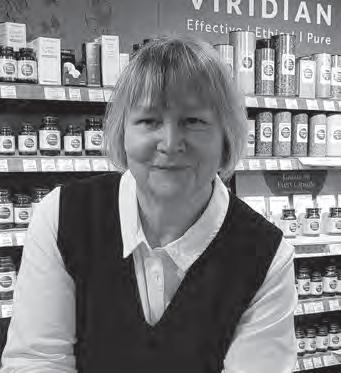
Cheryl Thallon Founder, Viridian Nutrition
When my husband Shaun and I decided to open our own health food store back in 2016, we had two compelling reasons. Firstly, we were dismayed that so many local people were so badly served by the NHS and had no place to turn locally for natural health, and secondly, angry that our industry was undervalued and often undermined by regulators and politicians. We wanted to share our passion for healthy foods and supplements with our home town, and I wanted to serve on the committee of Health Stores UK (then known as the National Association of Health Stores).
Having been in the natural products industry since 1983, aged 21 (first working in health food stores, then as editor of Natural Food Trader, before moving into the supplements sector, and finally founding Viridian Nutrition in 1999), I believed I had a rare 360-degree insight into the supplier/retailer/public/press/political view of our extraordinary industry with my 40-plus years of experience. But it wasn’t until we opened Sheaf Street Health Store in sunny Daventry (#DiscoverDaventry) that I realized the full extent of the highs and lows of day-to-day retailing.
We were shocked when we first opened our shop at how many people were suffering with low mood, depression and anxiety; so many customers – young and old – were taking prescribed medication and/or self-medicating with food, sugar, cigarettes and alcohol. Being able to shine a spotlight on the issues we most cared about – mental health, isolation, sports fitness, animal rights, veganism, fair trade and, of course, the power of food supplements – meant that the store and our team soon became known for our advice and clarity of message in both the words we said and the products we chose to stock on our shelves.
retailers and help others by sharing best practice, tips and knowledge. It’s this collective strength of the retail side of our industry that I believe is under-represented.
Who exactly runs our industry? Who drives the sector and sets the agenda for natural health? Is it the suppliers, regulators, politicians, media, public – or health retailers? The health store supply chain includes a growing number of mass-market, pan-global conglomerates including Nestlé, Proctor & Gamble, Unilever and more; do we want these companies driving the natural products movement? The regulators – the Food Standards Agency and the Medicines and Healthcare products Regulatory Agency (MHRA) – are there to protect us, but don’t have a focus on or expertise in natural healthcare. Cabinet politicians are rarely interested in our sector (though available for a photo opportunity when not in office!). The media swings from ‘this cures’ to ‘this causes’ and rarely reports appropriately on evidence-based research.
“Don’t be shy! Be a local health hero or a vegan vigilante – your customers will thank you”
At Viridian, the insights we’ve gained from the store – in test marketing, display, new product ideas and training tools –have been, and continue to be, a major source of inspiration for the company.
On the committee of Health Stores UK I’ve been able to network with buyers, understand the challenges and opportunities experienced by stores, learn from exceptional
No, in my humble view, the future of natural healthcare is best placed in the hands of independent health retailers. We have our finger on the pulse of what the public cares about, wants and needs – and we are perhaps the only piece of the jigsaw that truly cares about helping people to genuine health and happiness without having to appease grasping shareholders, Big Food/ Big Pharma or confused voters.
What are you angry about? Why did you choose to own a health food store in the first place? What issues do you shine a spotlight on? At Sheaf Street Health Store we’re very active. When we saw local councils ignoring local business interests, we founded the Daventry Retail Forum so independent stores could have input into the development of the town, we created a consumer-facing social media presence for @DiscoverDaventry and have run countless campaigns on the menopause, brain health, mood, social inclusion and more. Don’t be shy! Be a local health hero, or a vegan vigilante – your customers will thank you. And while your dander is up, take a look at Health Stores UK’s website and see how you can network and help shape the progress of natural healthcare. Your community and industry need you to be angry!
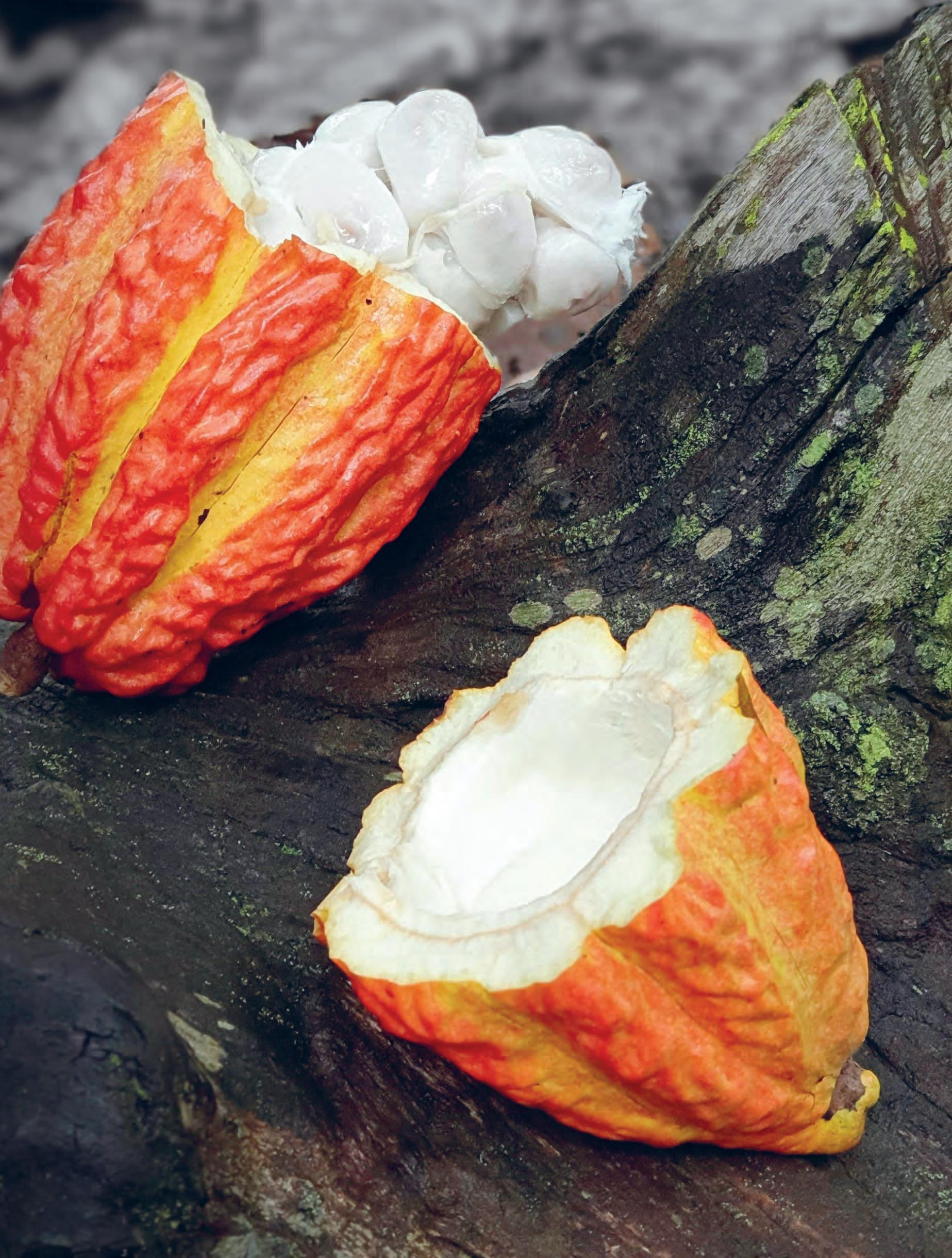
With demand rising and cocoa prices soaring as disease, extreme weather and ageing trees hinder production, Jane Wolfe investigates the fallout for stakeholders – from farmers to customers FEATURE
Global cocoa supply is predicted to fall by nearly 11% to 4.449 million tonnes in the 2023/24 season [ICCO] as production in Côte d’Ivoire and Ghana – the two leading producers – has decreased by 467,000 tonnes and 448,000 tonnes respectively over the past three seasons.
The shortage is due to a combination of factors, including: cacao swollen shoot virus; adverse weather; illegal mining; and ageing trees – it takes ten years for new trees to reach maximum yield. With speculators and stockpiling exacerbating the situation, along with an ever increasing demand, it is unsurprising that prices have sky-rocketed, reaching all-time highs in April of US$12,261 per tonne, up 65% from the start of 2024.
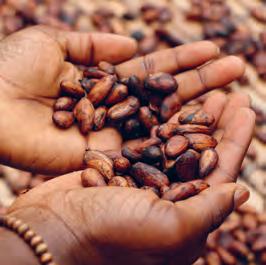
The price hikes will hit independent brands hardest, with ‘Big Chocolate’ likely to weather the storm more easily. “Smaller brands have less power and control over the cocoa system and less influence over the supply chains,” explains Gerrit Wiezoreck, managing director of organic chocolate manufacturer EcoFinia (Vivani, iChoc). “They also don’t have the opportunity to store larger stocks of beans. They are
therefore more quickly confronted with having to adjust products or increase prices.” With the massive impact on production costs, Wiezoreck predicts the price of chocolate will rise by 20-40%. “After corona and the start of the Ukraine war, which led to an energy crisis and inflation, many brands have absorbed increases, resulting in lower profit margins, so manufacturers are already at the limit. Despite all goodwill, price increases are unavoidable, and most brands have to pass the costs on to customers.”
“Prices of chocolate have definitely crept up,” notes Jon Inder, marketing manager at Greenlife health store, Totnes. “Some bars have increased in price more than once, but at the moment sales haven’t been adversely affected –perhaps because there has been a lot of bad news about the UK economy and some very depressing international news, people are reaching for chocolate to cheer themselves up. Much of our customer base has a reasonable amount of expendable income, and many are prepared to pay a bit more for products that are in line with their principles.” However, he doesn’t discount a tipping point at which sales may begin to fall as some customers start to look for cheaper options.
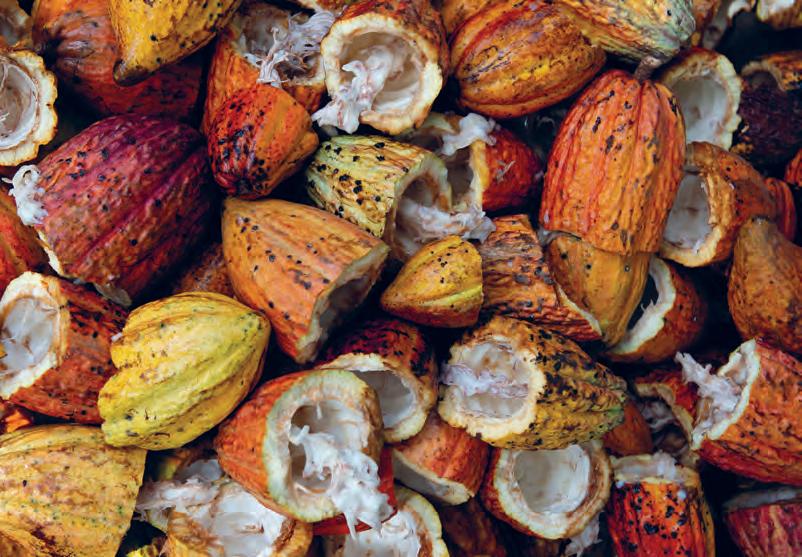

“I think it’s absolutely fine that price rises are passed down to the consumer,” he adds. “This is especially true of ethical and Fairtrade brands, as the livelihoods of cocoa farmers – who are already struggling with lower yields – should be protected. And when you think about it, cocoa is a luxury after all. Even though we take low cocoa prices for granted, chocolate never used to be as cheap as it is today, relatively speaking.”
Vivani sources organic cocoa from Latin America, where the brand has long-term partnerships with small organic co-ops, guaranteeing them a fair price. However, Wiezoreck says direct ethical partnerships don’t necessarily help in the current crisis. Richard Turner, MD of Mood Foods (Ombar) says that despite having fiveyear direct agreements with farmers’ co-ops in Ecuador and consistently paying 33% higher than the market’s fair trade price, when the global market price significantly exceeded the regular price

it pays, farmers wanted the market price. “It is understandable, but makes it very difficult for us as we had to pay more than double for our chief ingredient. They were being approached by middlemen paying high prices, so farmers sold to them rather than their own co-ops. This is damaging for the co-ops as they can’t then fulfil sales contracts with their customers. The global peak will be fairly short-lived, but the consequences may be longer term.”
“Higher prices offset by lower productivity simply perpetuates the income insecurity that keeps farmers trapped in poverty and threatens the future of cocoa,” says Jon Walker, Fairtrade International senior advisor for cocoa. “To make progress on environmental and living income goals, stable minimum prices and long-term contracts between buyers and cocoa producers are necessary. Strong partnerships and co-investment will be key to weathering the current price shocks and building more sustainable cocoa livelihoods and supply chains.”
“The crisis has raised awareness of the issue and brought more understanding”
Turner believes prices will stay high for a few years at least, ‘not because the industry suddenly wants to pay farmers a proper living wage’, but because of the scarcity of cacao. “Prices will rise to protect profits, but sadly nothing ever seems to change on the ground in the West African countries contributing 60-70% of the world’s cacao. It might lead to more news articles which may increase awareness of what’s happening, but I remain sceptical that it will bring real change where it is so badly needed.”
“If we are honest, chocolate has been too cheap for decades when we consider the effort and costs involved in farming,” Wiezoreck adds. “It is difficult to live on prices below US$2,700 per tonne. If we look at it positively, the crisis has raised awareness of the issue and brought more understanding that cocoa prices need to stabilize at a level from which producers and farmers can live and which keeps chocolate accessible to everyone. That would be the ideal situation.”


Charles Redfern Founder, Organico Realfoods
When PR gets involved in environmental claims there’s a lot to be weary about. Twenty-five years ago, one shop in 50 sold eco products. Now it’s the reverse: everyone makes a sustainability claim. There has been an explosion of scientific evidencing so layered in acronyms and highfalutin rationale that mere mortals daren’t go there.
Consider carbon labelling: there’s a profusion of logos, each one a business with a vested interest. ‘Carbon neutral’ on a product is problematic. It depends on offsetting, which, as Greenpeace argues, is dodgy. It took a tumble in 2023 when The Guardian’s damning investigation revealed that the ‘gold standard’ of certified offsets by Verra was fictitious. Billions had been pumped into it. The carbon neutral industry reacted as any industry does when a PR disaster hits: Verra’s head was replaced; a stricter methodology would come into play; the science was deemed ‘faulty’. In net zero business, it’s as if nothing happened. The Carbon Trust ditched its net zero label – but you don’t find a mea culpa on its website, it’s all couched in ‘now even better’ advertising language. This is the learned amnesia of the corporate sector.
Carbon labelling is based on life cycle analysis (LCA) within which exist controversies. It’s fundamentally inappropriate for circular products, doesn’t account for fertility impacts, doesn’t include carbon sequestration, and different LCA reports give different outcomes.
On its steering committee sit big retailers and food corporations. Two years’ work resulted in a scheme which, to the IGD’s ‘great surprise’, deemed organic as less sustainable than intensively produced food. Put a question mark after the claim ‘science-based’. Research the consultants used. Wonder why most NGOs used in IGD’s ‘wider engagement’ are against the scheme.
“The problem isn’t science, but its politics”
Another problem is assumptions made within the LCA system itself, based on a simplistic modelling of market economics which says if you don’t produce X somewhere and there is demand, it will be produced elsewhere; you therefore must account for the substitution. By this logic, it’s futile to de-intensify the chicken industry along the River Wye because demand will simply shift production elsewhere.
Let’s talk about Product Environmental Footprint (PEF). There are 16 impact factors in a full PEF LCA, including land/water use, acidification, eutrophication and human toxicity. The same problems outlined in carbon LCAs occur here – more so, as they’re less studied.
When you hear the claim ‘science-based’, you might not be competent to challenge the science but you can work out that science-based is often challenged by something equally sciencebased. The problem isn’t science, but its politics.
UK eco-labelling got a push when there was talk of it becoming mandatory for food (an ambition now parked). Two initiatives emerged, including from the Institute of Grocery Distribution (IGD).
Fortunately for organic, EU eco-labelling predates the UK. France was first off the block with Eco-score – trialled then dropped by Carrefour, LIDL and Aldi. France’s fight against industrial interpretation of sustainability is led by Planet Score, which seem to be winning. It uses a supplemented LCA approach, with a bonusmalus system and corrections where LCAs aren’t ideal. There isn’t a yield or substitution assumption which creates unwarranted bias to industrial production. Planet Score is attentive to government goals and conscious of the food system’s noxious health impacts. It’s winning hearts and minds. Available in 12 countries, it’s supported by major retailers and NGOs. Consumers like the easy traffic light system which allows comparisons of impacts with specific headings: animal rights, pesticides, biodiversity and climate. IGD research conversely showed a preference for just one score, which seems counterintuitive. Planet Score doesn’t generalize nutrition; it highlights fats, sugars and protein separately, because without separation it’s a stab in the dark.
Look at the nitty gritty of both systems. The IGD wouldn’t allow differentiation between intensively or organically produced carrots; there’s neither incentive for brands to do better, nor clear indication for consumers. The IGD over-biases against meat and dairy and castigates pasture-fed production in favour of the most intensive system possible. Quelle surprise.
Planet Score means transitioning towards an intelligent ecological future. To ensure science-based is a respected claim, Planet Score was made a non-profit and handed over to researchers and NGOs.
Does any of this matter now Defra has dropped the idea of a government-backed label? Yes, if you care about sustainability. It matters that organic would be redefined as a backwater system for cranks and weirdos (as the agrotech industry said all along).
Working out the environmental footprint of a product is a complex challenge. It has to be done inclusively, openly, without fear or favour, with the correct objective in mind. Planet Score is the best bet for these reasons; that’s why at Organico Realfoods we support it and put all our products through its audit system.

For time immemorial the UK has kept one eye on the US – California and New York in particular – for emerging trends which could influence our own direction of travel. Now, with the organizers of BIOFACH about to put down roots in Atlanta, Georgia, it will pay dividends for industry pros on this side of the pond to pay even closer attention to what’s happening on US soil – figuratively and literally. With his finger permanently on the pulse, organic food expert Max Goldberg talks Rosie Greenaway through the four hottest trends shaping the US market today
DDescribed as an ‘organic sensation’ by The New York Times, Max Goldberg is a leading voice in the US organic industry. Founding editor of digital newsletter Organic Insider, Goldberg has spent 14 years researching, scrutinizing and supporting the organic sector, attracting a following of 42,000 professionals in his LinkedIn Organic Food Industry Group.
Famous for practicing what he preaches, since 2001 Goldberg has eaten close to 100% organic, even while travelling – which he admits requires meticulous planning to hunt down local organic juice bars, restaurants and markets. “I’m very serious about it. It’s not just something I write about, it’s my life. I stay in hotels based on where I can eat. I always travel with food.”
Next year he’ll be packing his organic snacks and heading to the inaugural BIOFACH America (Atlanta, 4-5 June 2025) where organizers have confirmed an all-organic menu from venue caterers. “It just shows their level of seriousness,” he comments. “People who go to these shows want to have an organic option at lunch. It’s a small, but very big, detail.”
Goldberg believes the move to Atlanta is ‘very positive’, plugging a gap in the US trade show circuit. “We have not had a place where all participants can come together under one roof to talk about the issues and the challenges that we face. Natural Products Expo West – they allow natural, non-GMO and GMO 2.0 products. Organic is part of that show; it’s not the sole focus like BIOFACH America will be. I think it’s the single biggest development … since the USDA took control of the national organic programme in 2002. It’s huge.”

“Without question the number one biggest trend in organic is add-on labels: Regenerative Organic Certified [and] Real Organic Project. These were essentially born out of frustration at the USDA not enforcing the rules,” says Goldberg. With USDA certification as a baseline, these privately managed labels are soaring in popularity as brands seek to enhance their credentials. Concurrently, there’s a strong movement towards third-party testing for contaminants, particularly in organic baby food. “Because USDA organic does not require all products to be tested for things such as glyphosate … brands are doing their own testing – whether it’s with Glyphosate Residue Free or Clean Label Project.”
“Brands are doing their own testing”

“Mental health awareness is growing”
With a number of prebiotic sodas and certified organic probiotics hitting the market, Goldberg is noticing a trend for products which address digestive health and the gut-brain axis, and a more general incline towards ‘functional foods that are not just filling your stomach but are actually formulated with gut or emotional health in mind’. With growing public openness to fermented food and drink –typically kimchi, sauerkraut and kombucha – eating habits are moving in a functional direction. “I think mental health awareness is really growing and I think that’s why you’re seeing an awareness of reducing sugar consumption.”

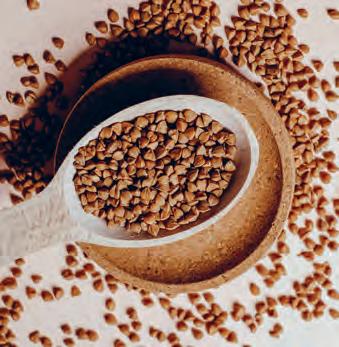
“Buckwheat is something that we’re starting to see in nut milk [and] granola. People are not that familiar with buckwheat. I think it’s a very interesting ingredient. It’s grown regeneratively in the Midwest, it’s gluten-free, it contains all nine essential amino acids, it’s helping the farmers, it’s very nutritious and it tastes great – it checks a lot of boxes. There’s a company called Lil Bucks doing Regenerative Organic Certified buckwheat [and] a company called Because Agriculture Matters (BAM) doing buckwheat milk; the first organic buckwheat milk I’ve ever seen. It’s a very compelling product. It’s a new approach to nut milk; it’s not almonds and it’s very smart from a business perspective.
Goldberg adds that in the coming years he expects to see a boom in organic millet. “It’s something that can be intercropped with what they’re growing in the Midwest. It’s really good for soil health so it can be a cash crop for farmers. It’s also gluten-free, which is a big deal.”
As a by-product of the popularity of weight-loss drugs such as Ozempic, organic protein powders are enjoying increased demand. “You’re seeing a huge spike in interest from the big CPG companies and investors in protein. It’s booming because with Ozempic people have to consume more protein, so protein powders are a real beneficiary. They’re exploding. Ozempic has nothing to do with organic, but [because of it] people are increasing their consumption of organic protein powders.”
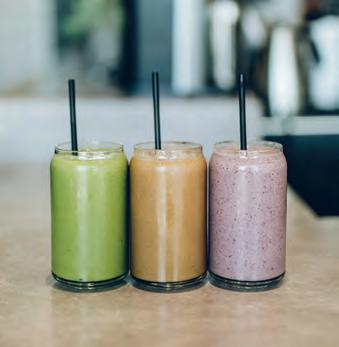
“People are increasing their consumption of organic protein powders”
Unicorn is an ingredients shop and we’re proud to flood our community with affordable, decent food, much of it organic. We’re pretty large; customers come for weekly shops as well as top-ups. Basic ingredients are always popular, but jumped 26% in Q1 compared to the same period last year. Driving sales are tinned chickpeas and tomatoes, baked beans, porridge oats, hummus and fresh bread. Our range of unpackaged organic fruit and veg is the heart and soul of Unicorn. We’ve built close relationships with growers, including crop-planning together, and sell a wide range of staples and heritage varieties. In Q1, £736k of our fresh produce was sold; that’s volume sales up 14%! Generating a consistent, reliable market for affordable organic produce is central to us. Unsurprisingly, top-sellers are carrots, spuds and apples – all UK. We’re not sure if kombucha is ‘a basic’ but the wonderful world of grocery is a moving beast and the rocketing sales of Suma booch are telling the story that it’s in many a shopping basket. Let’s big it up for our fellow worker co-op Suma for making brilliant products!
We’ve always prided ourselves on having no food waste. Our ‘free produce’ box, two-way compost stream and fast turnover of fresh produce have largely taken care of this, but our in-house kitchen, staffed by our talented cooks, works beautifully to meet this end, providing a range of ‘ready to heat and eat at home’ wholesome meals. We have a daily self-serve hot soup and a few options tubbed up in the chiller. Keeping up with demand is the challenge; they fly off the shelves, out of the soup urn and into happy bellies. The in-house hot soup is a massive draw with the biggest YOY increase of 22%.
We pack down a massive range of commodities – flakes, grains, pulses, herbs, nuts, dried fruits. Buying in bulk and packing down on site means we can pass on competitive prices to customers. In 2019 we introduced bulk hoppers in a move towards reducing packaging. Enthusiasm for this has taken time to translate into sales as customers’ habits take a while to change; however, this year we’re seeing a reassuring uplift with more ‘unpacked’ lines making their way through the tills. Sales have more than doubled, with flakes and grains showing a threefold increase.


Our juice section has slowed over recent years as kombucha and bottled water sales have grown. As a business that has imported direct from Europe for 28 years, we have experienced some Brexit casualties, and the longloved Delizum juices were the last to go as a result of the new labelling laws. Our range was looking a little threadbare! We are hoping the introduction of a new range – including quite a few lines from James White – will revitalize this section.
All our toiletries are at the natural end of the spectrum, and while we have a small section of baby toiletries they are slow sellers. It’s likely that customers buy the better value and equally natural and gentle products that are suitable for everybody, instead of buying the range that is targeted towards new parents – or maybe it’s time we reviewed and refreshed the range? It could be that we are not offering a range that meets

the desires of the consumer. It’s always worth taking a step back to have a look at a category with fresh eyes!

We have a range of branded box cereals that are very slow to sell compared to the cereals that we mix and pack ourselves. Although the branded cereals struggle to offer the same value, they do have a small following and so are good to have in the mix. We have recently introduced some satisfyingly crunchy Organic Wholegrain Rice Pops from IBIS Rice that we think fill a breakfast shaped gap and boost the boxed cereals a little.
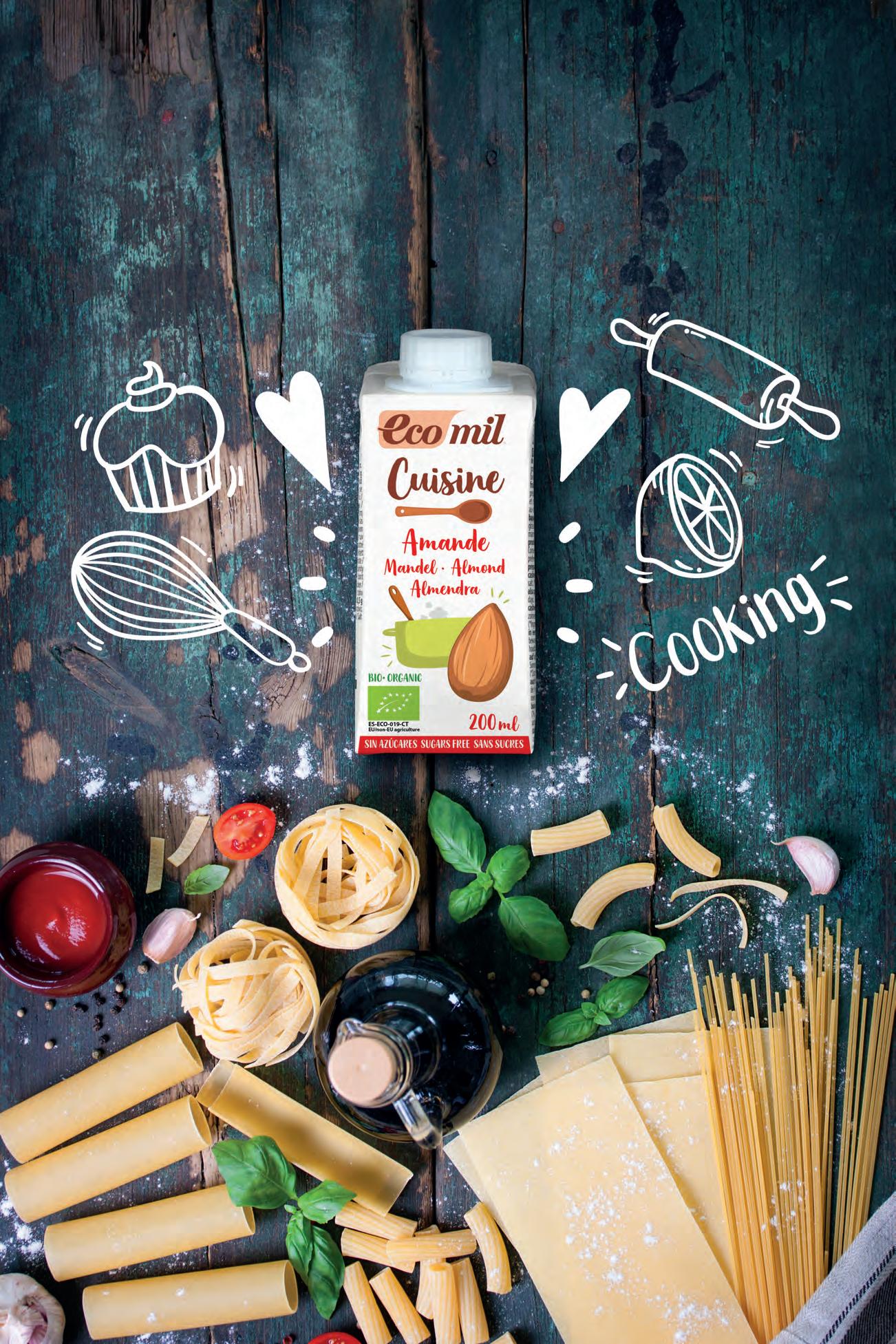

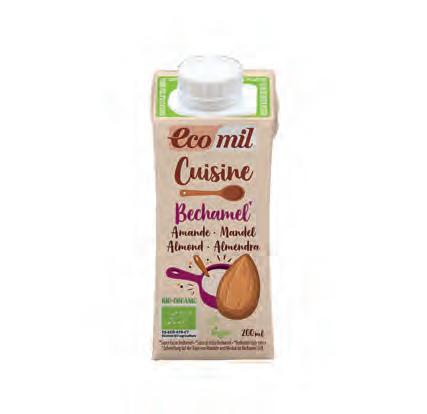
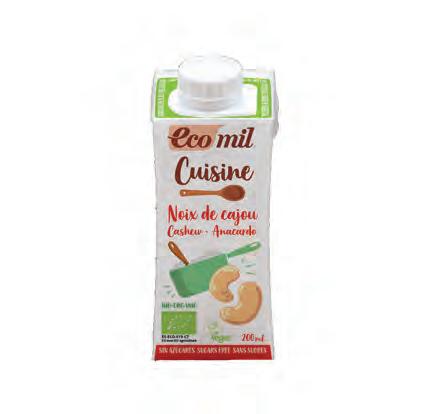
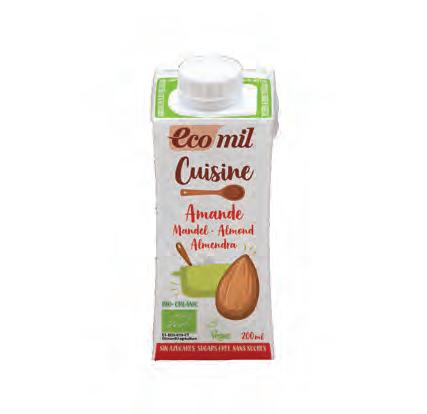
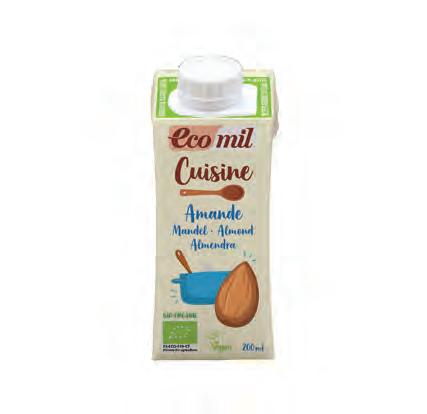
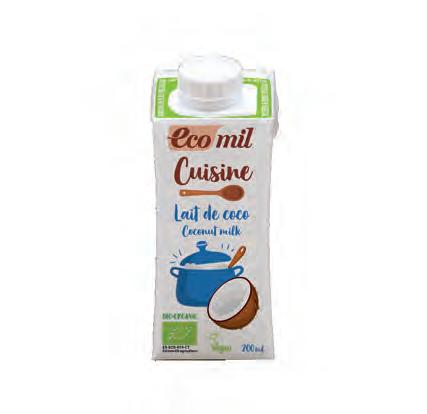
BEGINNING its commercial journey in 1974, Faith in Nature is celebrating 50 years in business, and to set the agenda for its sixth decade the company is moving across to infinitely recyclable aluminium packaging as part of its ‘next evolution’.
“Turning 50 is not about looking back, but looking forward,” explains founder Rivka Rose. “It’s about planting seeds that will grow our faith in the next 50 years.”
Having become the first company to rewrite its constitution in 2022, giving Nature a voice and a vote on how the business is run, the company aimed to ‘make better informed decisions’ on topics which impact the environment and ensure that Nature’s rights are ‘represented and respected’.
Its new packaging direction is an extension of that philosophy. “Though recycled plastic is good, infinitely recyclable aluminium is (obviously!) better,” says the brand.
The move to metal – initially being rolled out in 500ml refill bottles – will see the household brand manufacturing with less water and carbon. Additionally, formulations will now contain higher quantities of active naturals in a show of the company’s ‘uncompromising’ commitment to efficacy. Shampoos, conditioners and body and hand washes have increased from 99% to 99.5% natural, with a stronger emphasis on ‘carefully
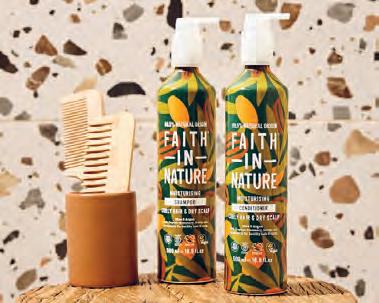
sourced’ ingredients which ‘not only work beautifully but give something back’: tea tree which supports koalas’ natural habitats; shea butter which champions the work of womenrun cooperatives in Ghana; and Scottish seaweed harvested to the strict guidelines of the Marine Wildlife Conduct Code.
Simeon Rose, brand director, comments: “These are the first products in the world that Nature has actually had an active role in the development of. As a voting board member, Nature has supported the move into 100% recycled and infinitely recyclable aluminium and to Nature-positive sourcing of ingredients. Imagine how different supermarket shelves might look if Nature had a say in all product development.”
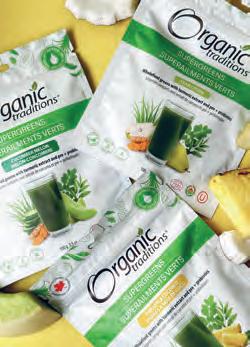
Traditions is ‘freshening up’ the daily wellness rituals of UK consumers with three new flavours of its versatile Supergreens powder – a dynamic blend comprising wholefood greens, probiotics and turmeric extract.
Designed to ‘streamline your wellness journey with a holistic formula that supports energy levels, nurtures digestive health and gently detoxifies the body’, the product is now available in Pear, Cucumber Melon and Pineapple Coconut.
Free from additives, sugars and artificial sweeteners, the blends are described as a ‘pleasant and convenient approach to incorporate greens into your everyday
routine’. Featuring eight nutrient-dense greens – including chlorella, spirulina, wheatgrass and matcha – each serving also offers prebiotic fibre and one billion probiotics to ‘foster optimal gut health’. A ‘rich source of vitamin A, magnesium, potassium, iron and invigorating B vitamins’, the blends offer gentle anti-inflammatory benefits through the inclusion of turmeric.
“Many people despise the taste of green juice, but want the health benefits,” says Ally Mamalider, president and second-generation founder. “To change the way people think of drinking their greens, we created a powdered blend that brings a refreshing and subtly sweet twist for daily enjoyment.”
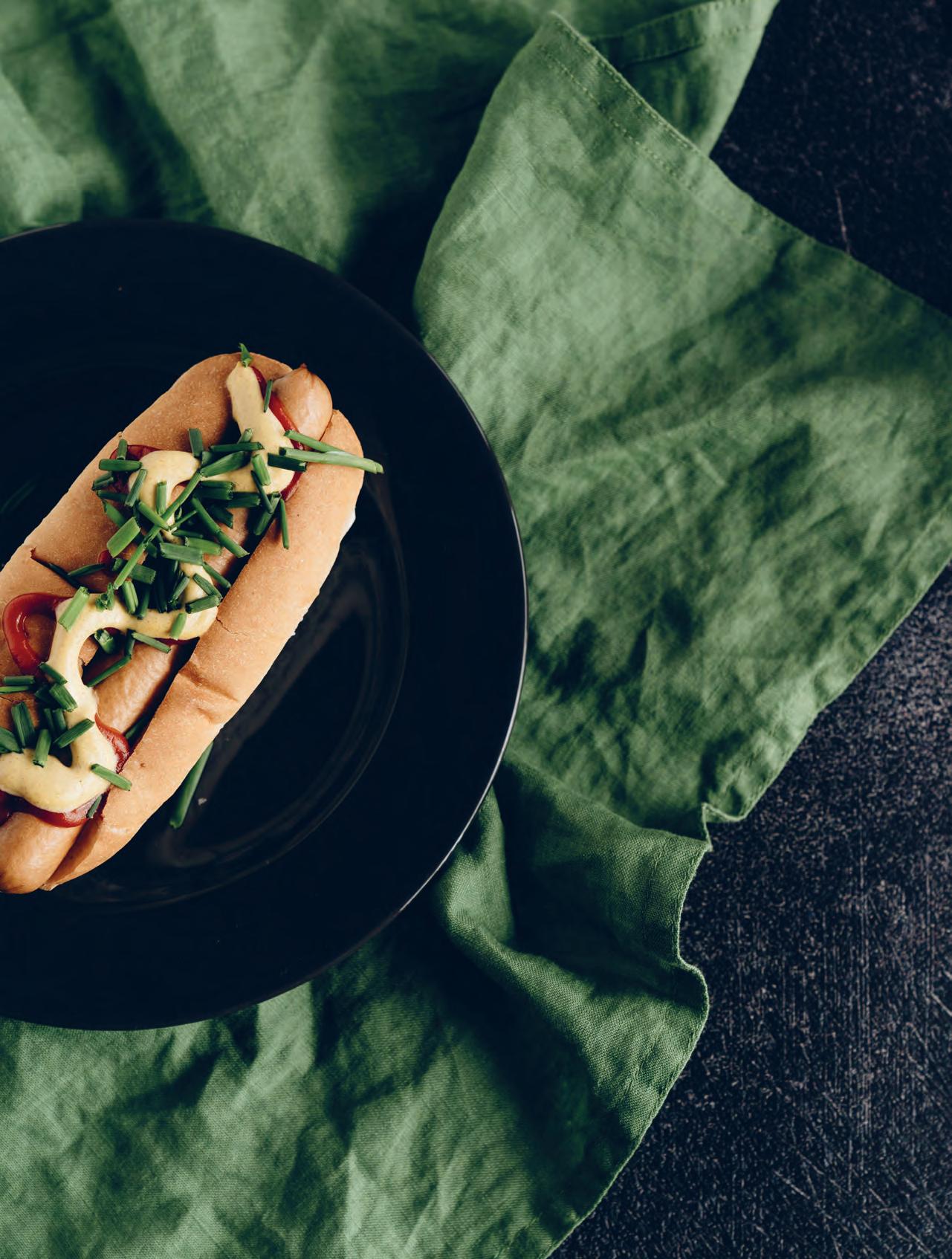
On a sliding scale between whole and ultra-processed foods, do UPFs have any place in the natural products market? With UK consumption of UPFs among the highest in Europe, Rosie Greenaway seeks to understand more about this food phenomenon
HHot dogs. Doughnuts. Pizza. Soft drinks. Ready meals. Most of us operating in the natural products space would agree that ultra-processed foods (UPFs), when consumed in excess, have detrimental long-term health impacts. But what about small amounts, consumed infrequently, in balance with a wholefood diet? Or foods which are considered minimally processed? Can a sweet spot exist between health, convenience and cravings? And what constitutes a UPF in the first place?
For retailers, establishing a position on this hot topic means first understanding it. Here to offer his own definitions is Rob Hobson, nutritionist and author of Unprocess Your Life – a book aimed at helping people ‘break free from ultraprocessed foods for good’.
Hobson begins by making the distinction between minimally processed (something as simple as turning flour into pasta) and
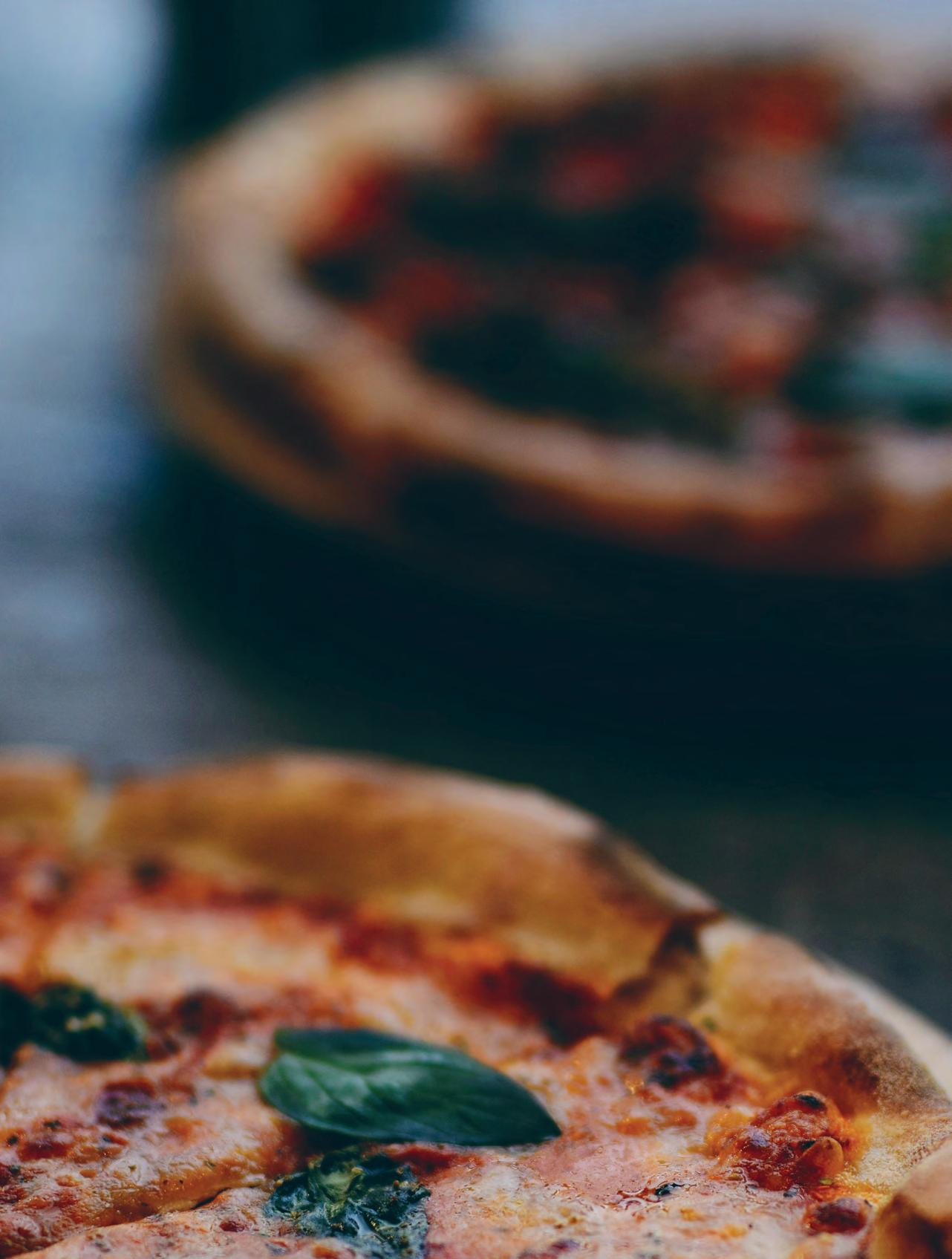
“TI’ve got very stark views about ultra-processed food; I just don’t think there should be any compromise”
Steve Dagnell, CEO, Baldwin’s
processed (which includes canning and freezing). Beyond that, additional procedures creep in with engineered ingredients ‘you won’t recognize’, resulting in UPFs. Typically ready-to-eat or quick to prepare, UPFs raise red flags for fat, salt and sugar, and are usually low in fibre and nutrients. They often have a soft mouthfeel, are famously moreish and fire up the brain’s receptors, flooding our systems with dopamine, which can quickly lead to addiction.
Getting sucked into the world of UPFs is easily done, despite best intentions; UPF packaging often bears health claims –even natural and organic, warns Hobson – resulting in understandable consumer confusion. This is where the grey area begins for health food retailers too, and where opinions divide, with some stores taking a zero-UPF stance and others making room for some ‘healthier UPFs’ –wholegrain cereals and popular plant-based
alternatives may qualify, scoring points on nutrition but containing preservatives or having undergone several processes.
For Steve Dagnell, CEO of Baldwin’s in London, stocking UPFs is a hard no. “Somebody has got to be the arbitrator of what’s in and what’s out in the health food industry, and I’m afraid that I find this a very black and white area. [We have] principles that we’re unwavering on. There’s always a movement in the health food industry, often by people who just see it as a business … to push the boundaries of what is acceptable and unacceptable. And I’m sorry, I’ve got very stark views about ultra-processed food; I just don’t think there should be any compromise.”
With 3.1 million emergency food parcels distributed by food banks in the Trussell Trust network [April 2023-March 2024], food insecurity must be considered in the role of UPFs; with suffocating financial
constraints, and without the luxury of time, large swathes of the population are unable to go cold turkey on UPFs. “What happens if you get food from the food bank and the only thing you can get is white bread and processed food?” asks Hobson. “You don’t want these people to feel even worse; there need to be ways around so you can help them to eat well.”
While a long-term high-UPF diet is thought to raise a person’s risk of chronic illness, bombarding the public with negative messaging and demonizing their dietary choices may be counterproductive. Rather than chastising people, expecting scare tactics to cause an overnight revolution, Hobson advocates spreading accurate information on budget-friendly swaps (such as lentils) to plug the nutrient gaps created by UPFs. By allowing shoppers to discover the alternatives available to them at their own pace and adopt changes gradually, there’s a better chance of healthy habits being sustained.
page 6


There’s also a place here for balance and common sense: “If you don’t have a massive food budget and sourdough is £3.50, buy the white sliced loaf and with money you save, spend it on vegetables.” With the cost of living crisis raging on, Hobson argues that frozen veg – already established as processed, technically – can be a game changer. “In certain dishes, like stews, just use frozen vegetables. There’s no food waste, you won’t notice the difference and you get the nutrition.”
Although vegan bacon and meat-free patties don’t appeal to him personally, he accepts these innovations have value in helping those who want to dip their toes into plant-based but aren’t sure where to start. “We shouldn’t be demonizing people just because they had a meat-free burger. There are worse things you could include in your diet [but] you wouldn’t want to eat them all the time.”
For now at least, UPFs are cemented in UK diets; a survey by Viridian Nutrition found that eight in ten diets are predominantly UPFs. So is there any way back for our addicted nation? Hobson hasn’t lost hope, but he emphasizes the enormity of the task ahead – and not just for the food industry.
Education in schools and workplaces, a widespread public health campaign, product reformulation, free downloadable resources and clearer food labelling could all help, alongside careful urban planning to prevent fastfood shops from opening adjacent to schools, creating pocket-money traps and ‘food swamps’ which block access to healthy options. “It’s an obesogenic environment. It’s hard to make healthy choices when everything around you is unhealthy,” Hobson observes.


Buyer name: Rick Fear
Store name: Earthfare
Stores: 1
Years retailing: 15 (as Earthfare)
Why you got into the natural health industry: I’ve always loved food, and have a passion for local produce. I knew one of the owners from the gym, and after speaking with him and hearing of his passion for the industry, business, team and customers, I knew this was where I wanted to be.
Most effective POS: We trade as a supermarket (in an old Woolworths store), so we don’t have a lot of space for POS. We use shelf edge talkers and try to be honest, so if items have jumped in price we explain why on info cards.
Most effective promotion: Our organic fruit and veg is a focal point as you enter the store, and it’s an area we are really proud of. For Organic September we do
three great deals each week (one fruit, one veg, one juice made in-house) and see a great uplift in sales.
Favourite product and why you love it: Our own-brand Peanut Butter & Chocolate Brownies. They’re made inhouse by our fantastic kitchen and deli team, and taste better than any other brownie I’ve tried; I find out when a new batch is being made so I can grab a warm one ASAP!
How do you find new products? Distributors, trade shows, supplier reach-outs and local markets are the big ones, but some of the best products have come from staff and customer recommendations. We have 40 team members, all passionate about the products we sell, and they often pop upstairs to the office with samples, pictures or information on brands that they’ve seen.
Which issues are front of mind when sourcing products? All of our lines must be organic, local or ethical. UPFs are a really hot topic at the moment. We’re reviewing all of our existing lines at present and speaking with suppliers
Rick Fear Earthfare, Glastonbury

“UPFs are a really hot topic at the moment. We’re reviewing all of our existing lines at present and speaking with suppliers about anything we don’t want to be selling”
about anything we don’t want to be selling. The same criteria goes for any new lines.
Top tips for ordering: As a tourist town, planning can be key. Keeping up to date with local events means we can ensure we have everything available for busy periods.
What are your customers looking for in 2024? We’ve seen a big uplift in wholefoods over the past few months; we’re adding more lines to our prepacked Earthfare range and adding more dry refills.
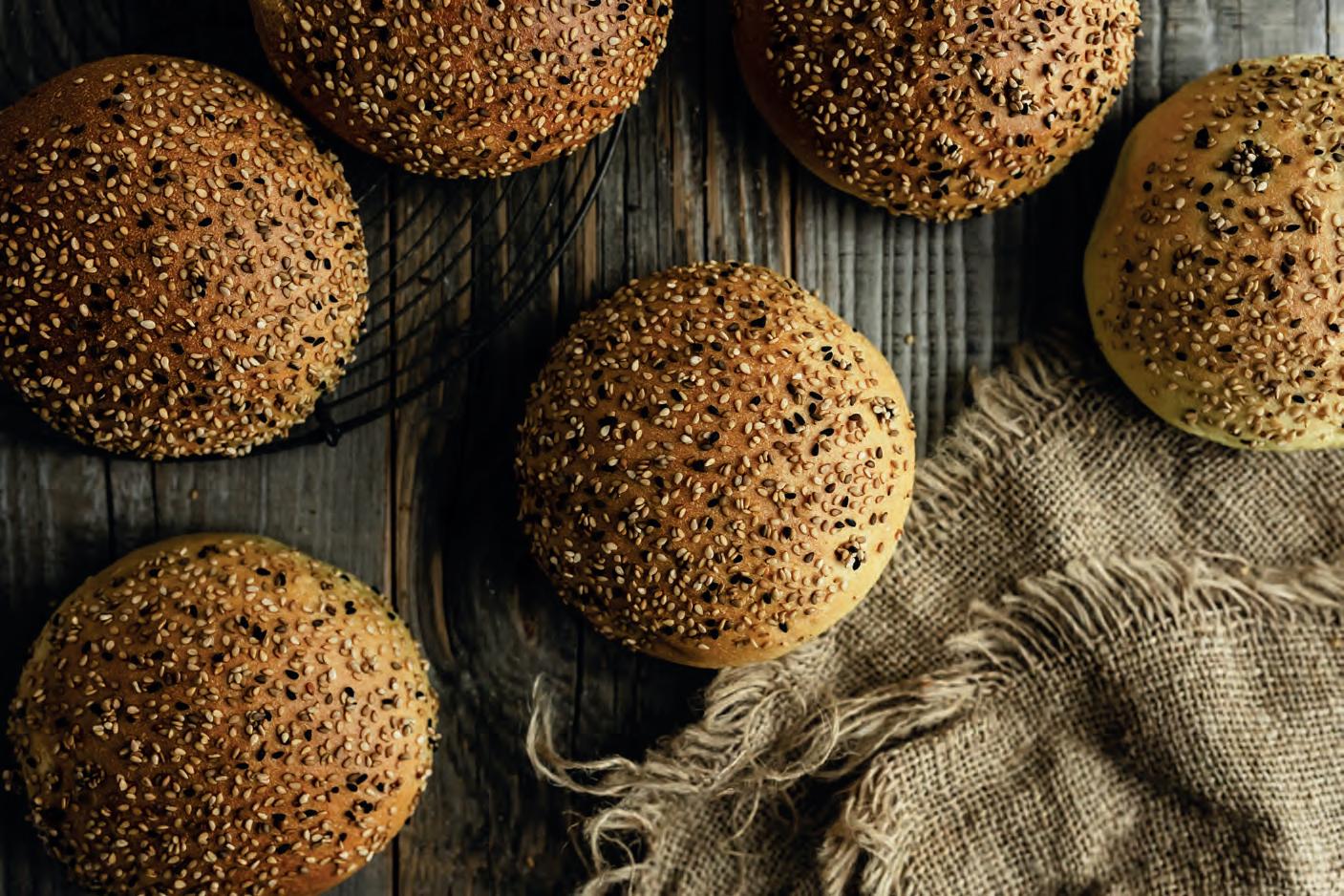





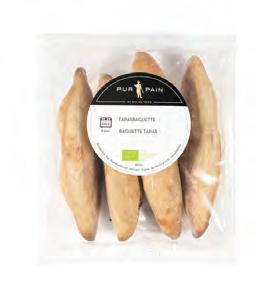

















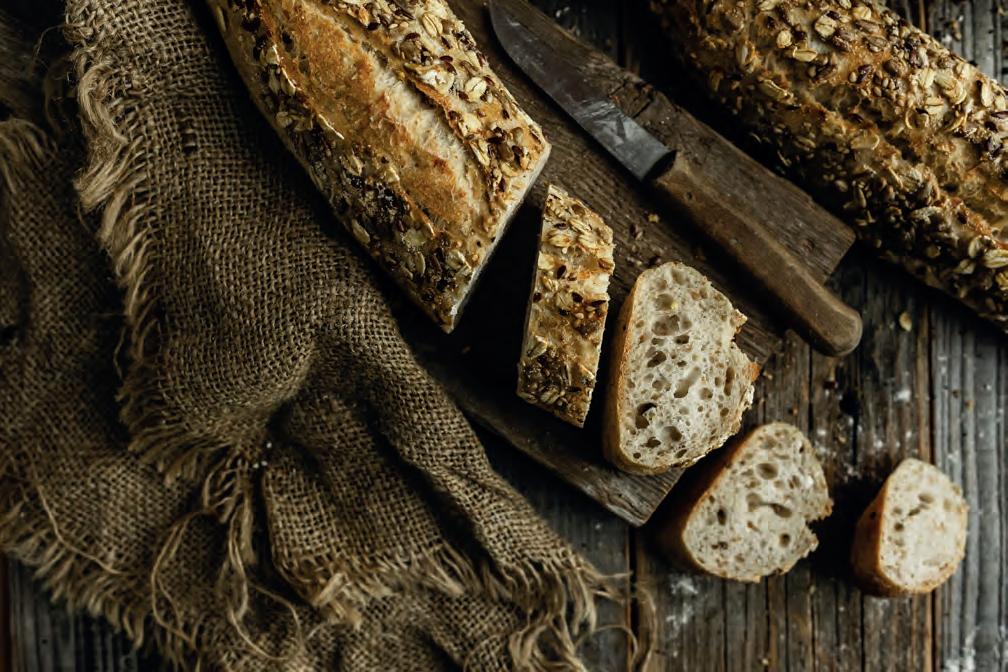


A simple sweet treat, perfect for summer. Created for Ecomil by food technologist @earthlytaste, this recipe shows the versatility of the brand’s popular organic Almond Cuisine cooking cream and celebrates the simple pleasure of fresh, seasonal fruits

Ingredients
For the cheesecake cream:
350g dairy-free cream cheese
200ml Ecomil Almond Cuisine cooking cream
60g coconut oil, melted
120g organic cane sugar
2tsp vanilla extract
For the base:
120g digestive biscuits or cookies
1-2tbsp organic sugar or 20g agave syrup
40g coconut oil, melted
1 Start by making the base: blitz or crush the biscuits or cookies with some sugar or agave syrup and mix with the melted coconut oil.
2 Press the mixture into the bottom of four small glasses and flatten it with a spoon so that it creates an even layer. Place the glasses into the fridge to chill while you prepare the filling.
3 For the filling, blend the cream cheese, Ecomil Almond Cuisine cooking cream, melted coconut oil, sugar and vanilla together until smooth and creamy.
4 Distribute the mixture evenly between four glasses.
5 Refrigerate overnight.
6 Top with fresh berries or your favourite summer fruit before serving.


Rosie Greenaway rolls out her picnic blanket to suss out this summer’s al fresco options, from luxury grazing boards to sustainable swaps


WWhen something is awarded its own calendar moment, it doesn’t necessarily mean it has huge public appeal (Lost Sock Memorial Day, anyone?) but where National Picnic Week is concerned you can be sure the existence of this annual celebration is an indication of the subject’s societal importance.
In fact, according to Food Industry Executive, picnics are among the hottest food trends this summer, with four factors driving their popularity: rising restaurant prices; a lingering public appreciation of the great outdoors, ignited during the pandemic; human yearning for spontaneity, informality and escapism; and finally, the Millennial and Gen Z obsession with lifestyle curation.

This last point is key from a commercial perspective. While many will roll their eyes at the suggestion that something as superficial as an app could influence something as traditionally wholesome as a family picnic, it’s evident that very little in the modern world is

untouched by social media – picnic baskets included. So retailers hoping to cash in on the picnic pound would do well to consider colour coordination and perfect pairings when merchandising this summer.
The art of planning and executing an aesthetically pleasing spread is, for some, serious business. Since COVID, picnics have been reimagined as the perfect vehicle for an Insta-worthy theme or a ‘get ready with me’ TikTok, making it likely that in summer 2024 the UK’s parks, beaches and open air concerts will be flooded with highly curated hampers, stylish blankets and matching picnicware.
From the luxury picnic centred around fine foods, high-thread count linens and real glassware, to its sustainable counterpart featuring plastic-free packaging, bamboo reusables and organic homemade hummus, outdoor snacking as a social activity is hitting new heights.
Forget soggy sandwiches and potato salad for a moment and ponder the popularity of grazing. With its history thought to have woven through ancient Rome and the Renaissance – and a more recent resurgence winning it legions of foodie fans in Australia – grazing has become a commonplace form of presentation in the
Say ‘summer picnic’ to Hendrik Durnez – master baker of Belgian organic and carbon-neutral sourdough brand Pur Pain – and his mind conjures images of being immersed in nature with friends and family. “I think about enjoying time with people I love – and good food.”
Sharing his hamper ideas, Durnez says it all begins with fruit and bread – namely Pur Pain’s Organic Tapas Baguette or full-sized French Baguette. From there he builds his al fresco menu with ‘good dried meats and charcuterie’, and an array of cheeses, adding a chilled bottle of crisp white wine to finish.

“The art of planning and executing a pleasing spread is, for some, businessserious ”
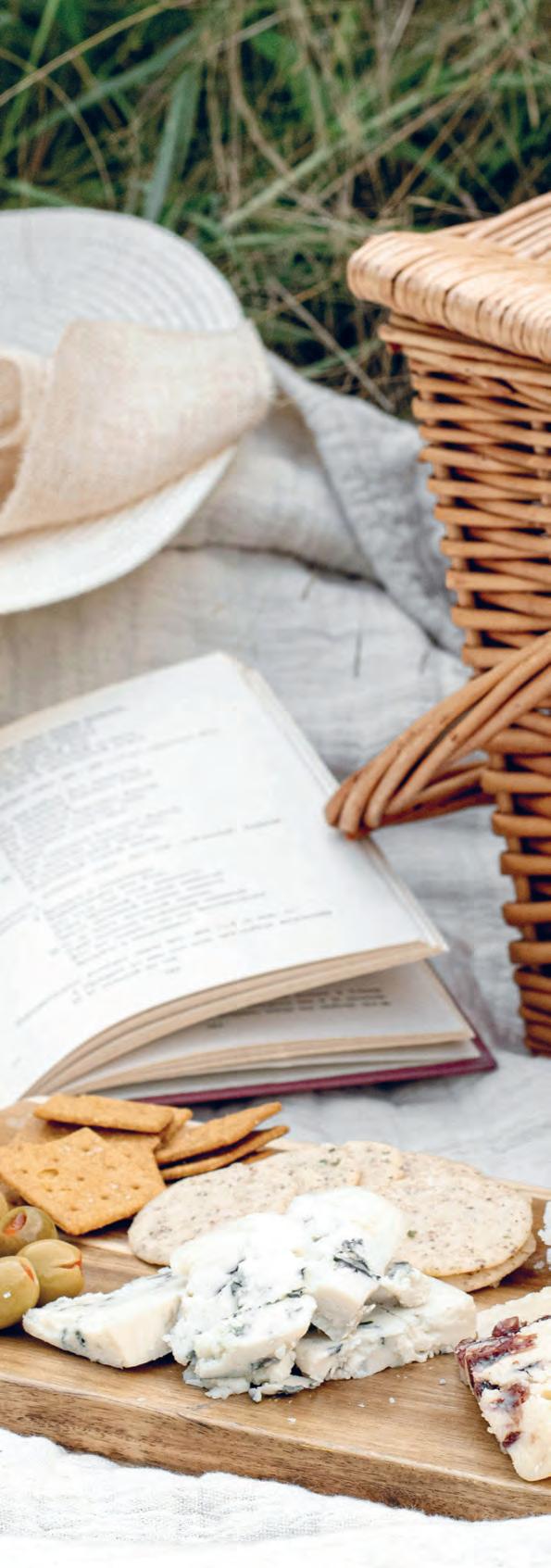
UK, and a more sophisticated, aspirational version of the ‘picky tea’.
The grazing trend steers the picky tea away from its reputation as a ‘beige banquet’, the idea being to design a board bursting with all the colours of the rainbow. Enter health stores and delis – both abundantly equipped to fulfil a shopper’s savoury needs with an array of enticing ingredients: vibrant veg for crudités teamed with fresh artisanal dips; vegan cold cuts, antipasti items and local cheeses paired with gourmet gluten-free crackers; store cupboard essentials such as chickpeas for homemade falafels; and aromatic herbs, chutneys, organic nuts and dried fruit to finesse the décor.
Many stores will also boast enough sweet SKUs for the creation of a dessert board, brimming with seasonal strawberries, fair trade chocolate, vegan marshmallows, plant-based pudding pots and moreish wafers.
Waste Managed reports that 30% of overall outdoor summer litter is generated by picnics, with 40% of picnic-goers admitting to leaving rubbish behind. Herein lies an opportunity for retailers to stock sustainable swaps to single-use containers – from BPA-free lunchboxes, stainless steel water bottles, reusable cutlery and plastic-free straws to handcrafted wooden boards, organic cotton textiles and beeswax wraps, making your store a one-stop-shop for picnic planners as they head to the park this summer.
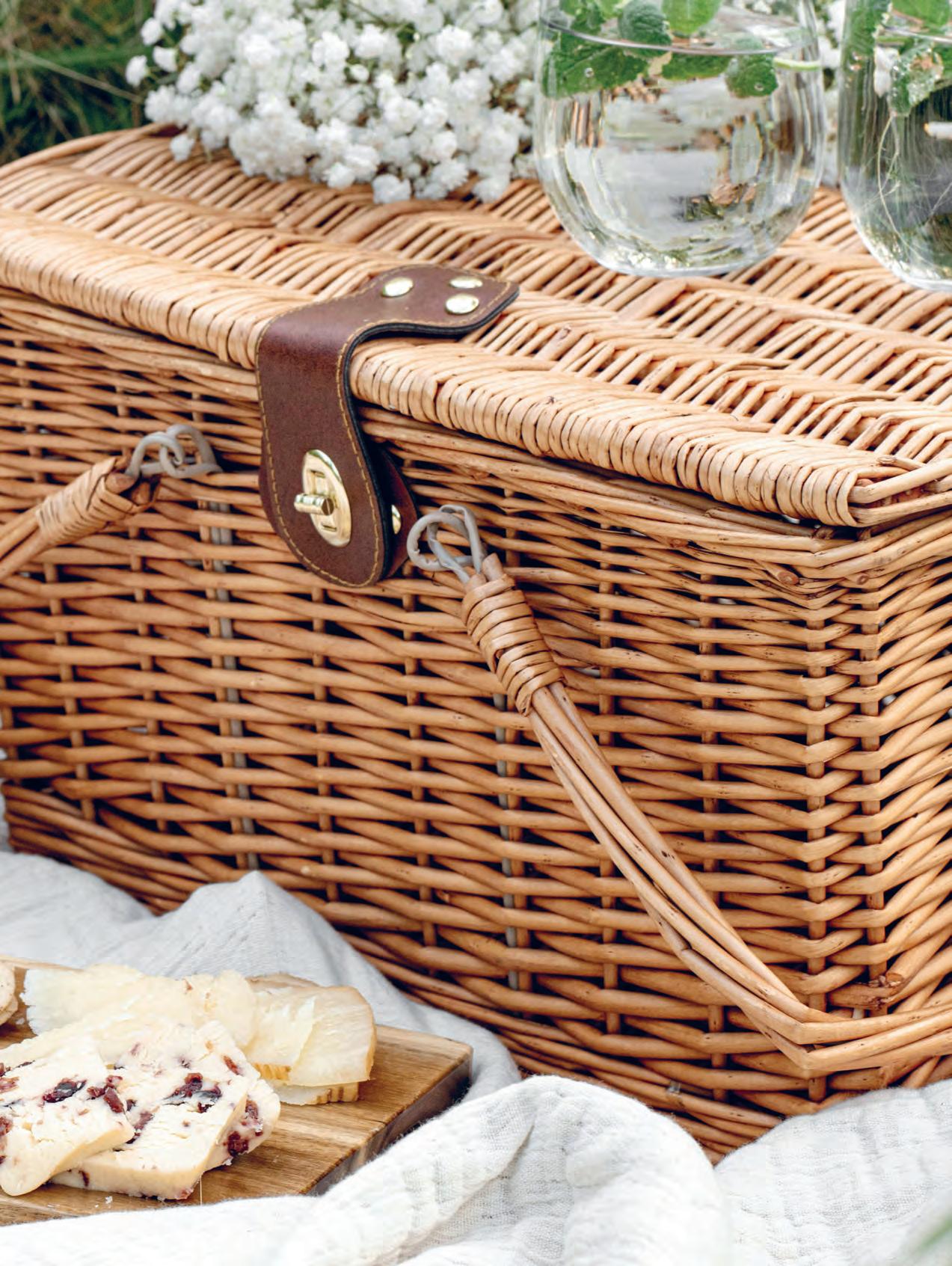
• Completeorganics Goji Beetroot: naturally fermented beetroot, refined with a refreshing hint of horseradish
• IBIS Rice Wholegrain Rice Cakes: nutty brown jasmine rice cakes, flavoured with Kep sea salt
• Kourellas Organic Cheese with Tomato & Oregano: a traditional family recipe with ‘unmistakably Greek flavours’
• Trafo Organic Crisps: hand-cooked, crunchy potato chips in fragrant Rosemary & Sea Salt flavour
• Origin Kitchen Forest Berry Bessert: superfood-rich cashews and summer berries combine in a nutritious, feel-good pud
• Sunny Fruit Organic Dried Fruit: succulent figs, strawberries, cherries, mango and bananas, now available in multipacks

• MadeGood Chocolate Chip Cookies: organic, vegan, nut- and gluten-free cookies packed in handy sharing bags
• Vivani Organic Wafer Rolls: crispy wafer coated in indulgent, sustainably sourced milk or dark chocolate
• Popcorn Kitchen Simply Sweet: B Corp-certified gluten-free, vegan, hand-popped gourmet corn with ‘exceptional crunch’
• TRIP Mindful Blend: calming functional drinks with magnesium and adaptogens at their core, in Cucumber Mint, Blood Orange Rosemary, Elderflower Mint and Raspberry Orange Blossom
• Three Robins Little Smoothie: an ambient oat milk-based smoothie aimed at kids, packed with ‘hidden veg’
• BAMBU Bamboo Sporks: spoonmeets-fork with this mini organic bamboo creation
• Keep Leaf Food Wrap: a BPA-free reusable wrap which folds out as a sharing plate, made by a women’s cooperative in India
• ATTITUDE Eco Wet Wipes: biodegradable, plant-based wipes to clean up sticky fingers and spillages
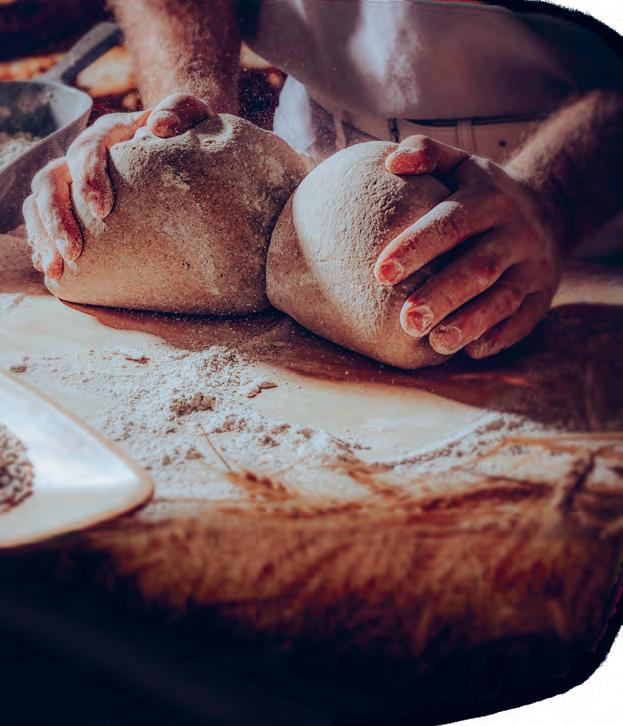
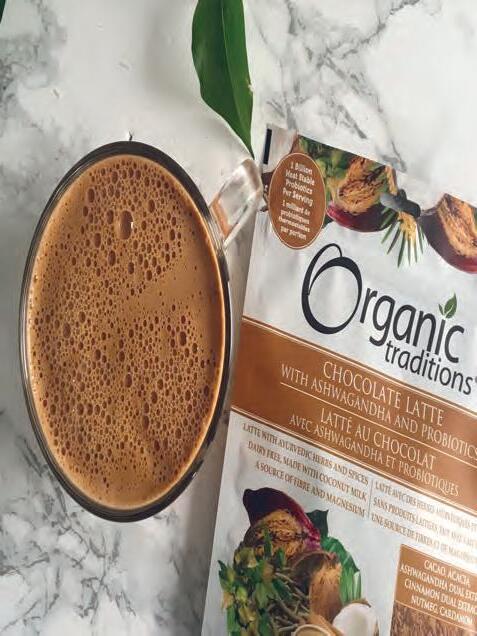







With eco-innovative and plastic-free packaging, sustainable certifications and an established range that does not compromise on performance, ATTITUDE’s products are seen by consumers as one of the leading clean and sustainable brands in this area.









British trailblazer


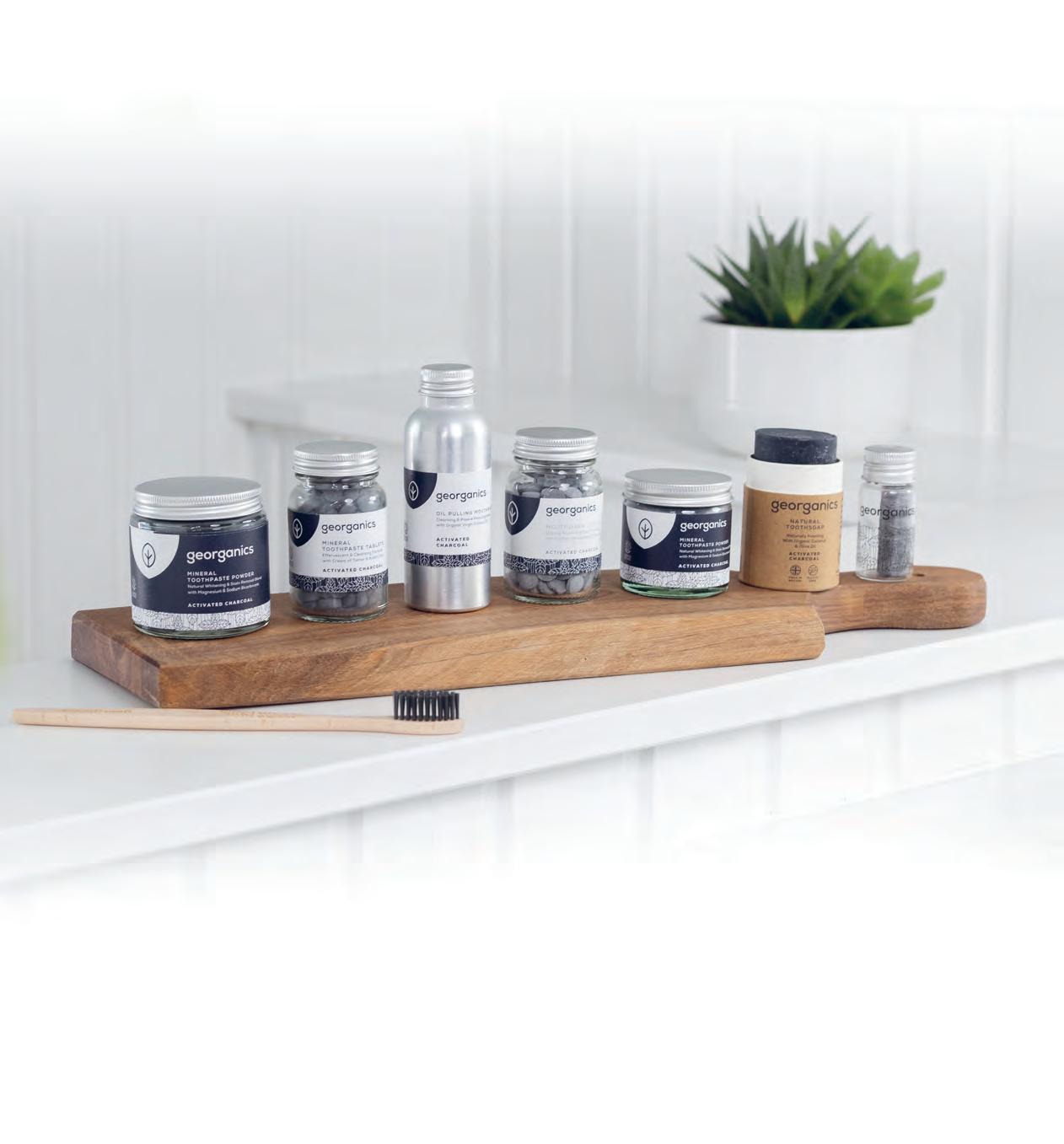
Georganics has been on a mission to transform toothpaste and toothbrushes from plastic rubbish into planet-friendly solutions since 2016. Fast forward to 2024 and its unrivalled range of plastic-free oral care offers every product a consumer could require for their oral


care routine – from toothpaste to floss, with brushes, mouthwashes and chewing gums in between. All products are crafted in the South of England exclusively in small batches from natural and organic ingredients, with the company also committed to plastic-free and zero-waste packaging wherever possible.

Rooted in conservation.
Hand-grown with a mission. IBIS Rice is proving that food production doesn’t have to cost the Earth.
IBIS works exclusively with communities in Cambodia’s wildlife sanctuaries to safeguard uniquely diverse ecosystems from destruction, with a number of endangered species being saved from extinction, including the giant ibis, Cambodia’s national bird.
As a conservation enterprise founded by the Wildlife Conservation Society, the company is empowering Cambodian farmers to preserve vulnerable forests through guaranteed

premiums for their organic Phka Rumdoul jasmine rice – voted the best rice in the world five times at the World Rice Forum.
This work has been supported by Chris Packham, who is an IBIS brand ambassador in the UK and is a champion of the project, as well as the incredible products themselves.
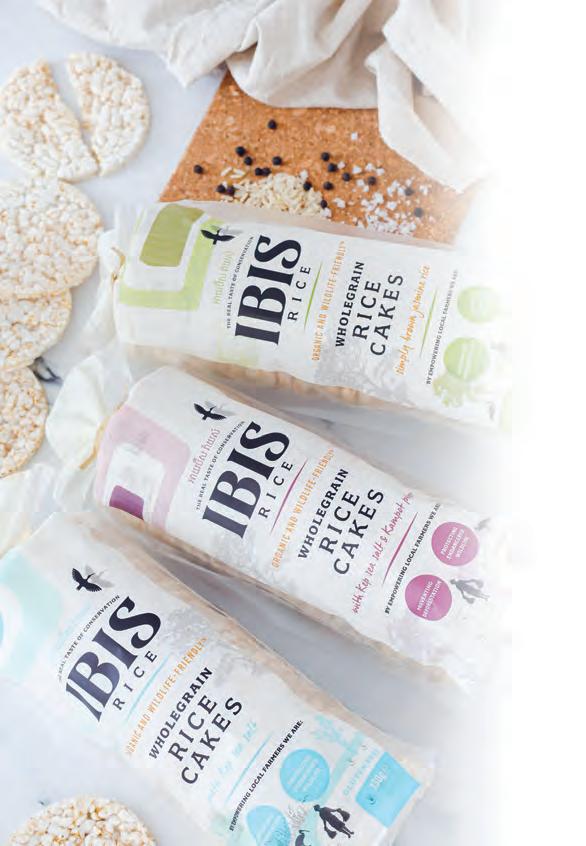

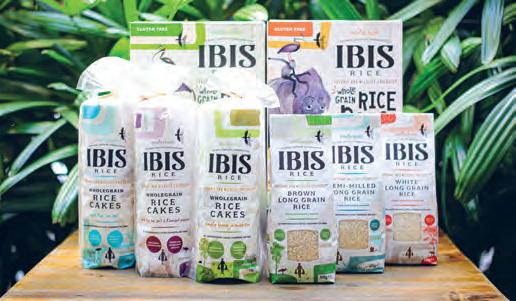










iChoc is an all-vegan chocolate brand for people who want to snack on plant-based, honest and conscious chocolate and still love the taste of classic dairy chocolate.
Fairly traded, incredibly sustainable and consistently plastic-free, the team at iChoc has worked hard to develop unique recipes using specific organic ingredients such as tiger nut flour and almond oil, not commonly found in vegan chocolate.


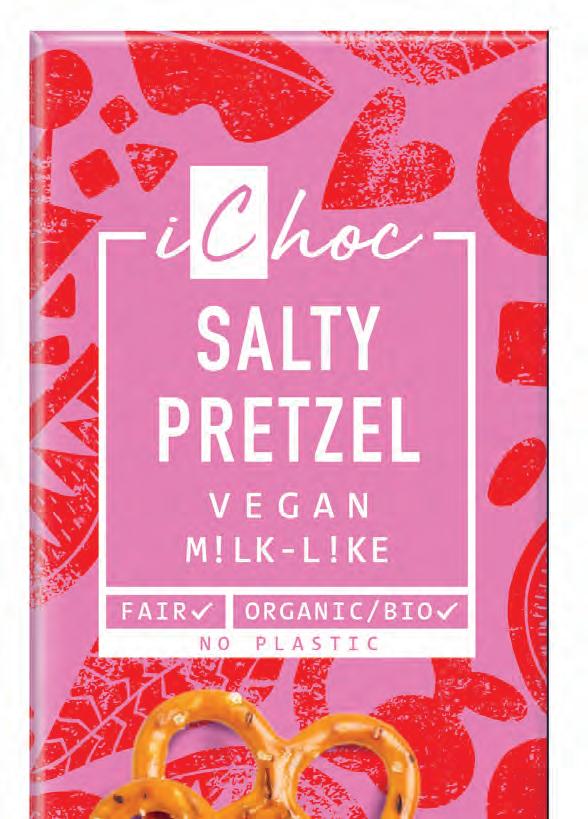
These special recipes combined with a traditional conching method means there’s no need for emulsifiers, and definitely no palm oil. In fact, only a few varieties use vegetable milk substitutes, providing the highest quality at a fair price.
The result has to be tasted to be believed – this is definitely not a ‘substitute product for vegans’! So regardless of whether you already live a plant-based lifestyle or not, iChoc is the perfect choice.

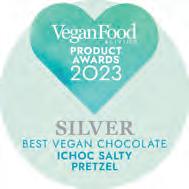






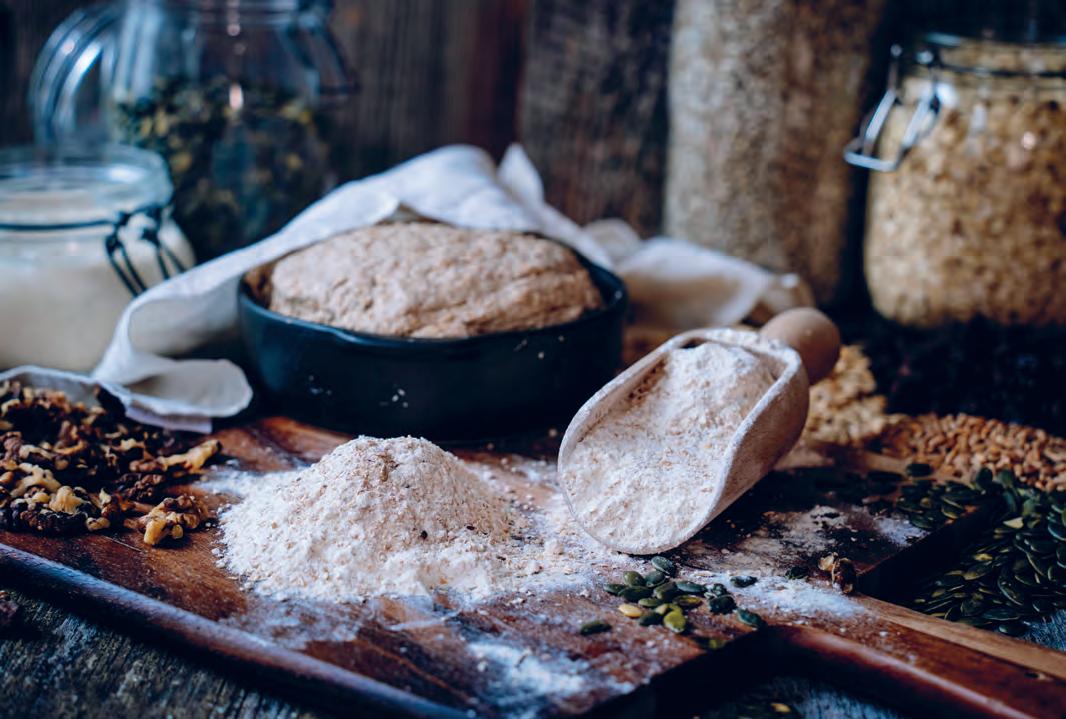

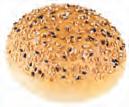








Par-baked, artisanal organic bread made in Belgium’s only carbon-neutral bakery
Organic ingredients, a traditional artisanal working method, long resting and rising times, an enthusiastic team of expert bakers in a modern setting, and above all an enormous passion and love for the job. This is what sets Pur Pain apart, and has done since 1911.
Not only that, the carbonneutral bakery has been using its own sourdough culture for over 40 years, leading to a naturally
fermented product that is rich in flavour and with lower gluten levels than standard. New to the UK in 2024, all seven SKUs come parbaked in MAP packaging. This provides a shelf-life on production of between 30 and 50 days and an oven bake time of less than ten minutes at home.
Such convenience allows artisan, organic bread to be enjoyed by all – accessible for consumers and retailers alike.
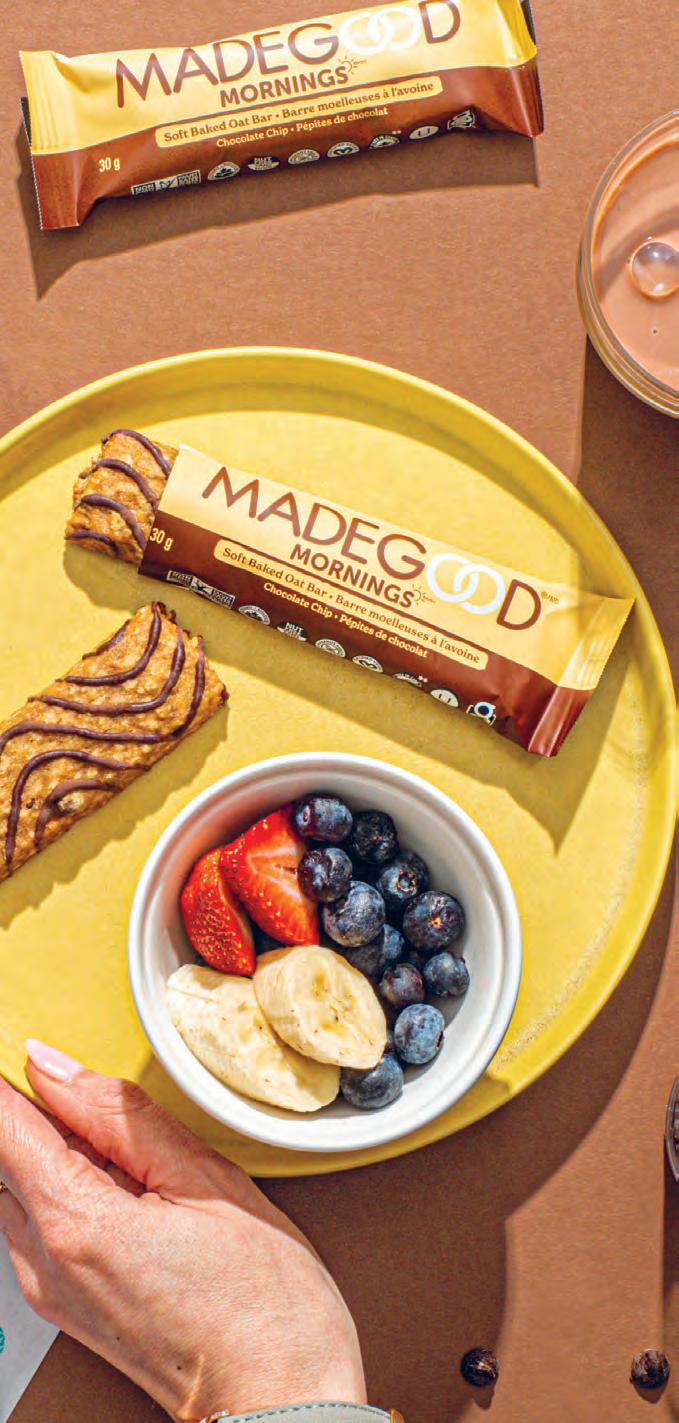


What started as a mission to create delicious snacks free of common allergens became a pursuit of so much more, culminating in a delicious range of freefrom granola bars, soft oat morning bars and cookies all containing one serving of vegetables from extracts. The company does things the right way, with all products made in a dedicated nut-free facility with a base of pure, uncontaminated, organic, certified gluten-free oats central to its products. Madegood is a certified B Corp, upholding a triple bottom line promise and has established healthy grower relationships, a zero-waste commitment and 100% sustainable
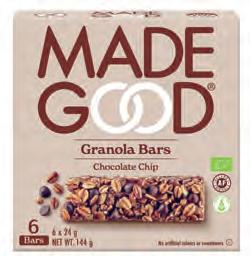
packaging action plan — all of which have manifested in many certifications providing much-needed authenticity every step of the way. It doesn’t stop there; as an established North American brand, NPD is always in the pipeline, and additional SKUs and single serves will be coming soon to complement this fantastic range of products.






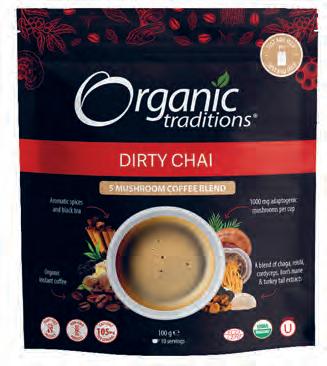
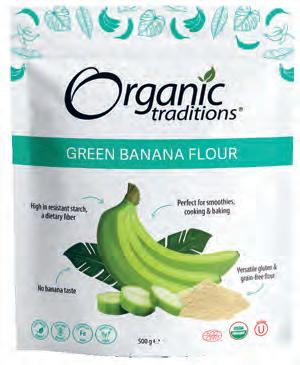
The mission at Organic Traditions is to educate and inspire consumers to live their most vibrant life by harnessing the power of traditional nutrient-dense foods from regions all over the world.
After all, it’s not a trend – it’s tradition, with the company’s nutrient-dense products sourced from
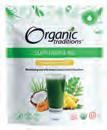
Ayurveda, Jamu, Unami, Asian, African, South American and Western traditions.
While many may just be discovering the benefits that these foods have to offer, ancient cultural traditions have prized the healing wisdom of these foods for centuries, and their appeal to consumers in the UK continues to grow.
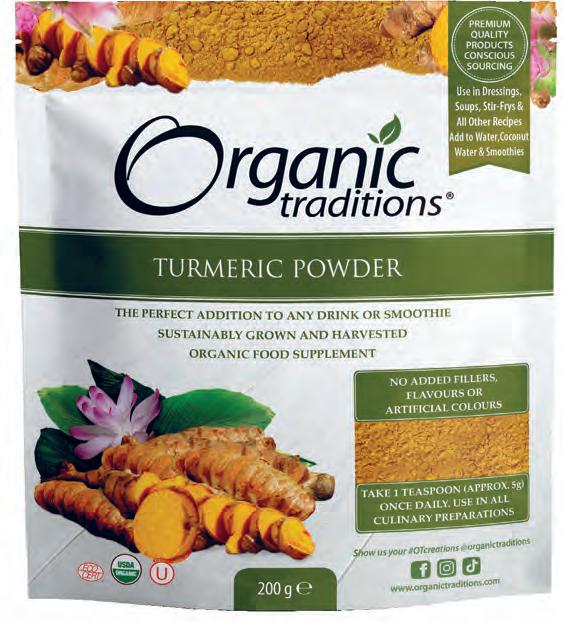
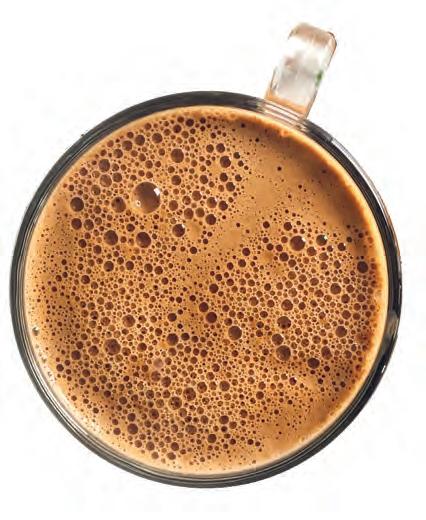
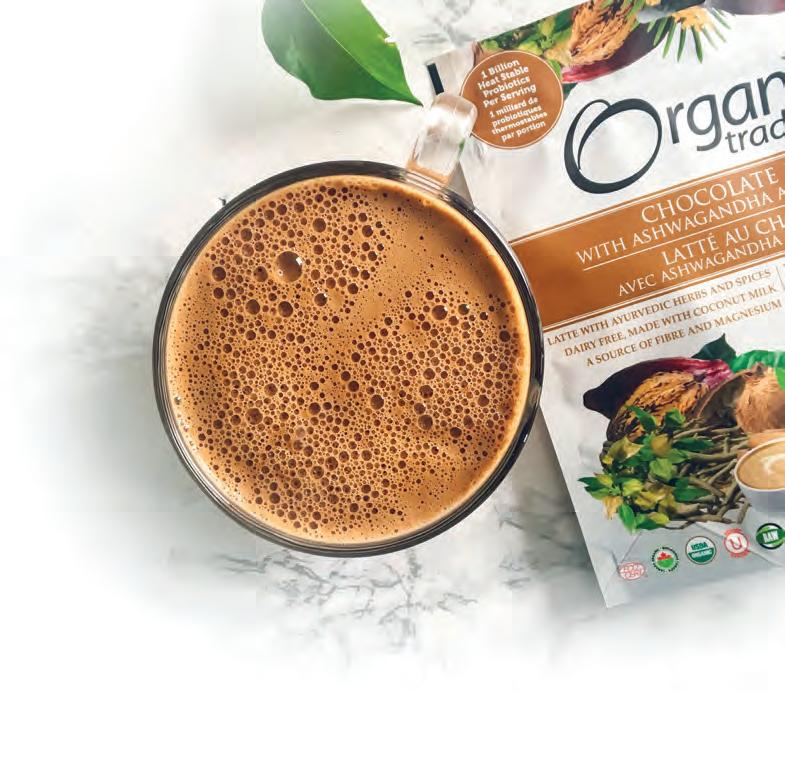




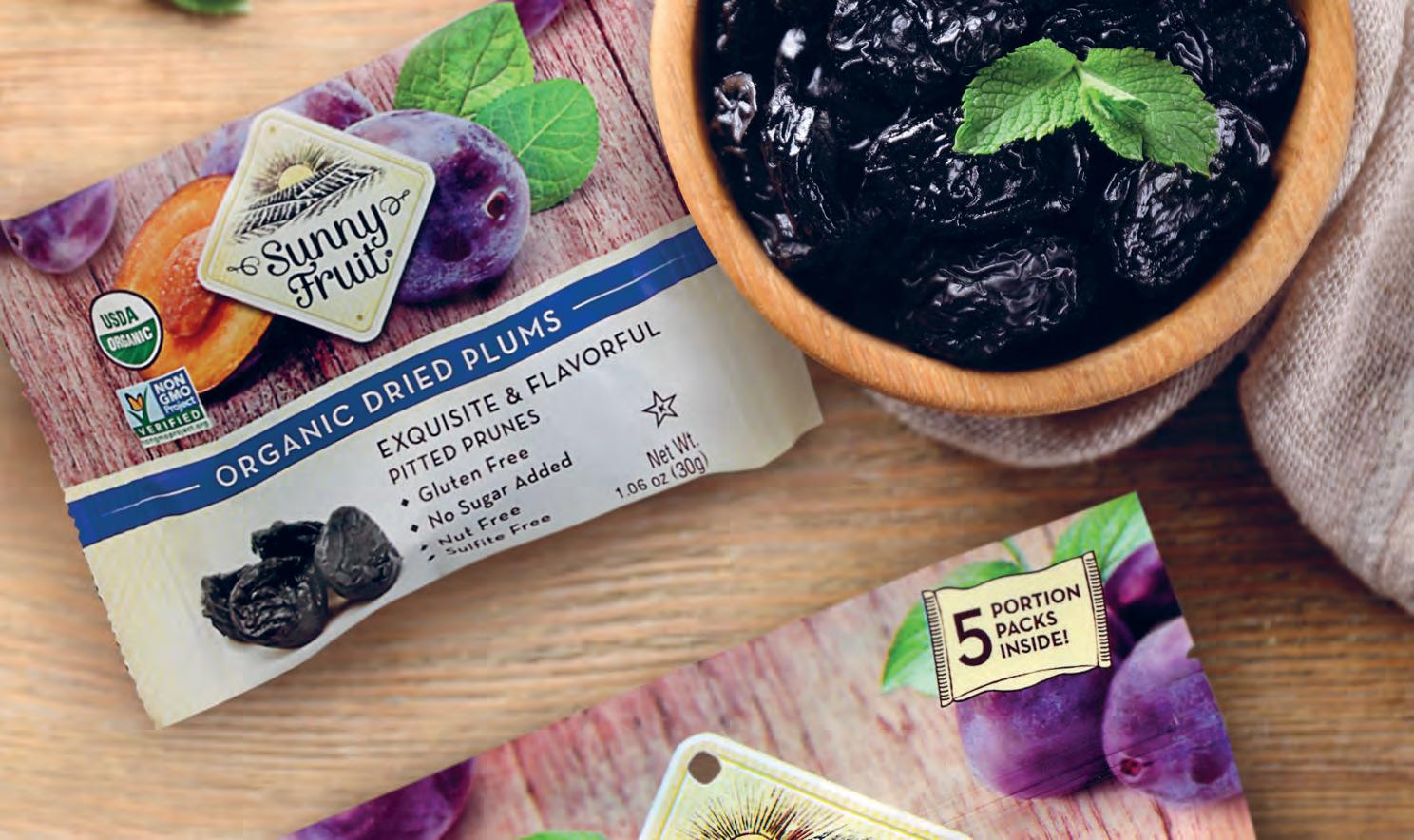

Sunny Fruit’s mission is to support active lifestyles with its healthy products produced organically and naturally sun-dried.
The Sunny Fruit difference begins at source – Izmir, Turkey. Here, the perfect blend of fertile soils and unique climate creates the most delicious dried fruits on Earth. With nothing


artificial added, you’ll taste the difference.
With a wide range of products available in a growing category and at a competitive RRP, Sunny Fruit has now launched a multipack format to support its impulse range, providing consumers with both an on-the-go and ideal lunchbox option at different points in the store.


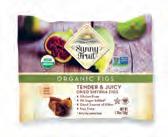
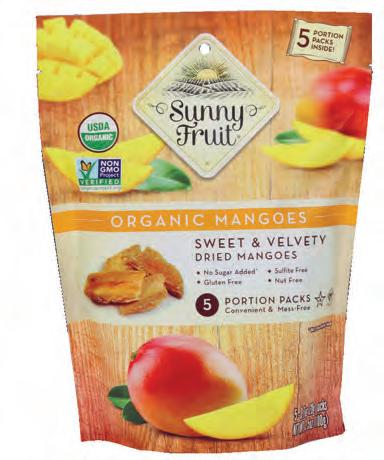
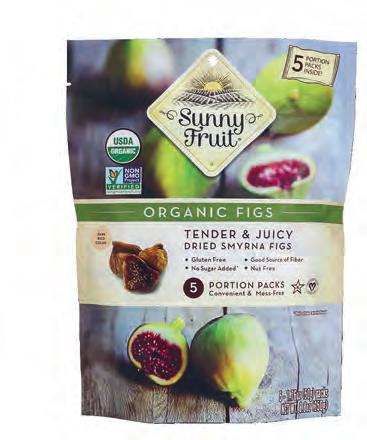
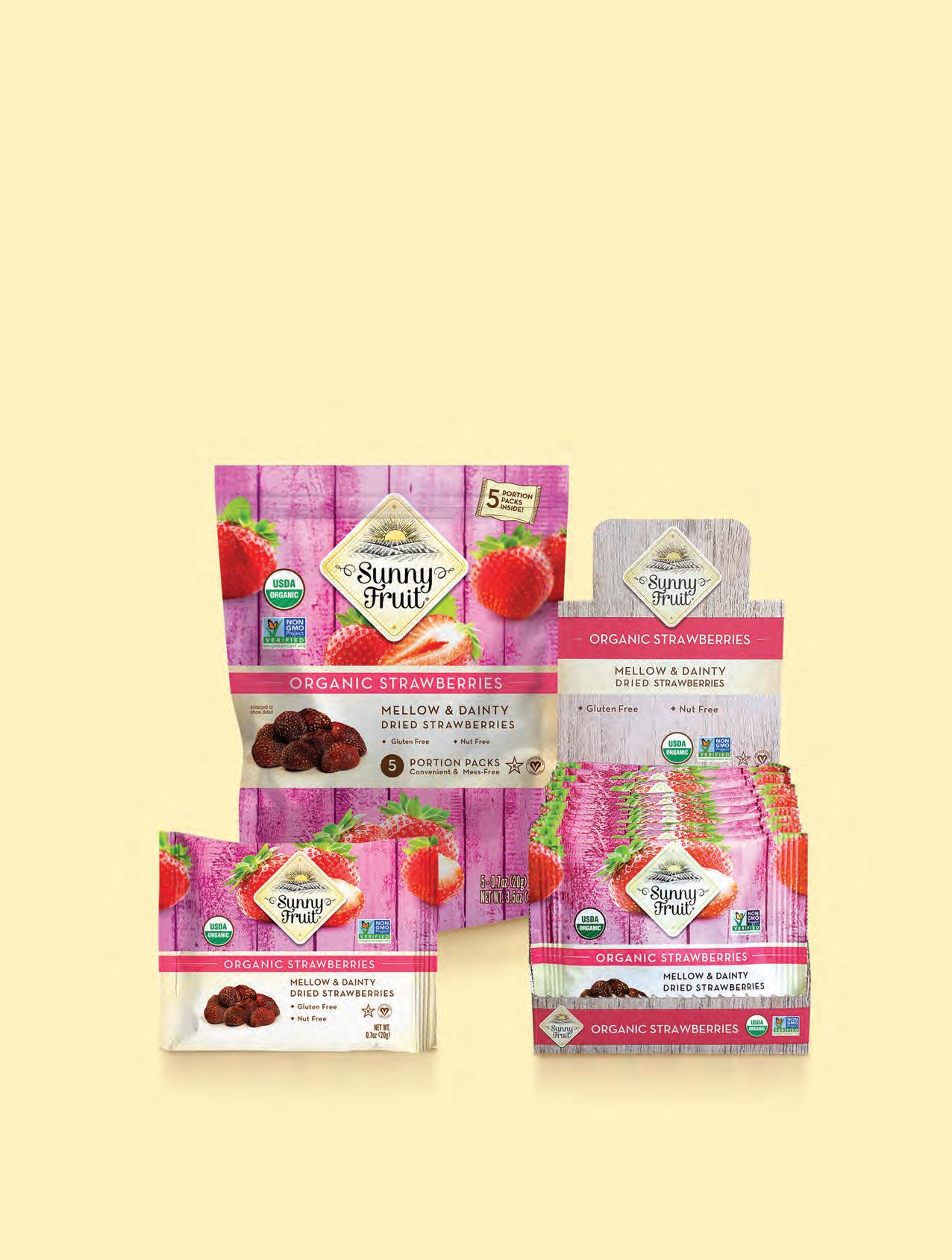



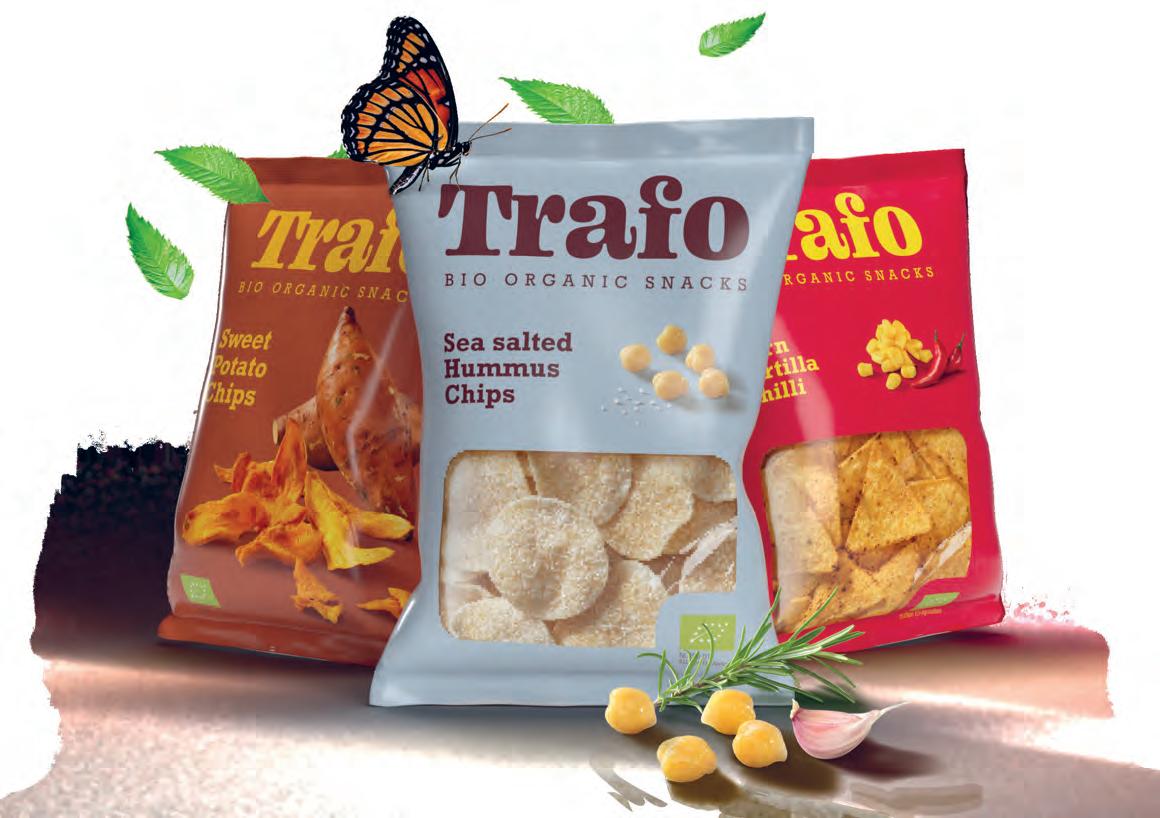
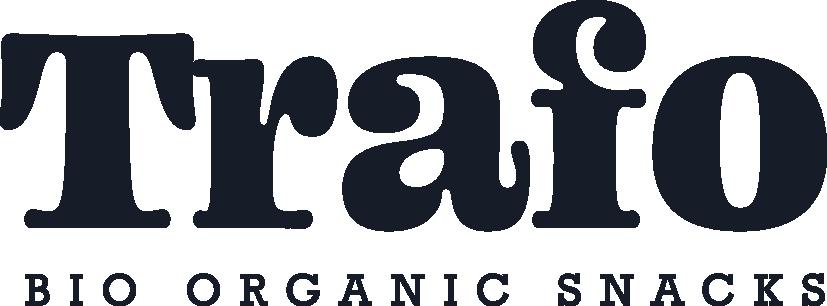
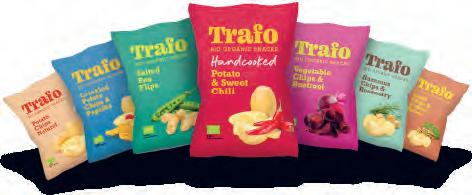
organic crisps of the highest quality
It’s that simple. Trafo crafts purely organic crisps of the highest quality, and has been doing so for more than 30 years.
From the care with which the company selects its organic potatoes to the passion and skill with which it forms them, this is a company that really cares about the taste of its end product.
These exquisite crisps are nurtured all the way from Dutch soil, and with over 30 SKUs across a number of ranges, including Handcooked, Crinkle Cut, Vegetable, Lentil and PlasticFree, alongside Popcorn, Tortilla Chips and Salsa, there really is an organic snack for everyone and to suit all tastebuds in the Trafo range.






Vivani is an experienced pioneer of organic chocolate, made by fourth generation chocolate-makers in the heartlands of Germany.
As both a company and a brand, Vivani is committed to providing a premium organic experience that celebrates not only the art of chocolate, but those who create it. It does this through being socially and environmentally responsible, price accessible and delivering a wide breadth of innovative flavours that
excite and satisfy all chocolatelovers. Each product and recipe is carefully crafted and adorned with an individual piece of artwork that is commissioned for, and befitting of, the product in question.
In 2024 this commitment was recognized as Vivani won the 16th German Sustainability Award recognizing its work in Direct Trade and other areas of sustainable practice.





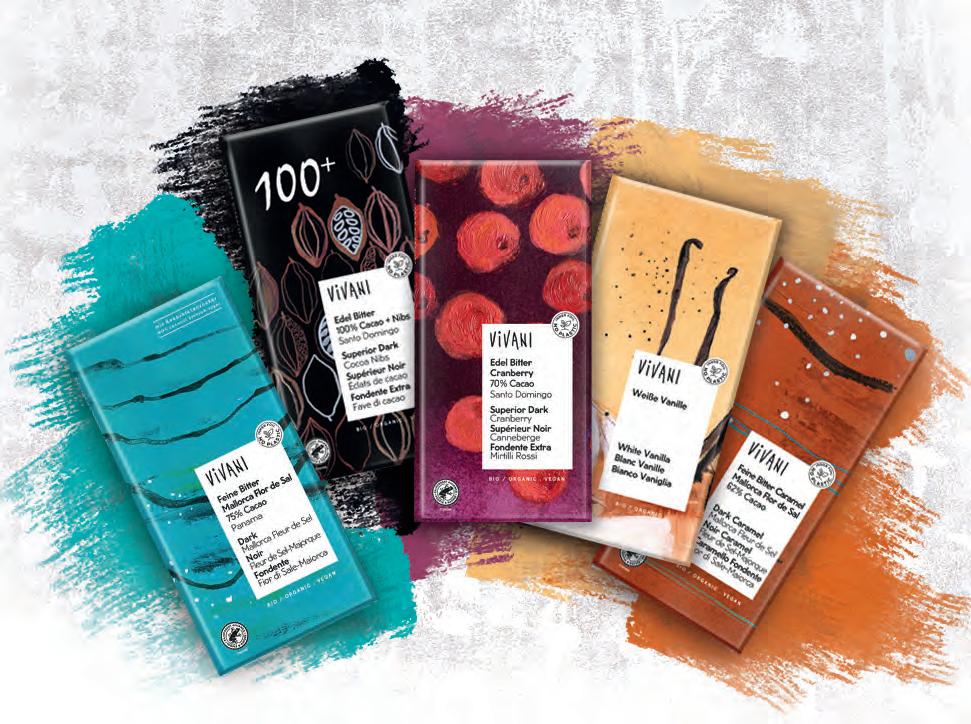
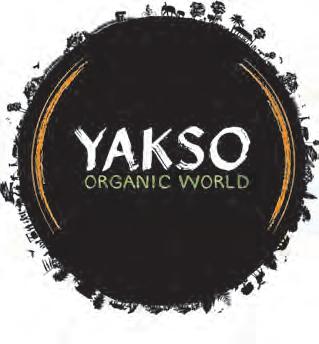
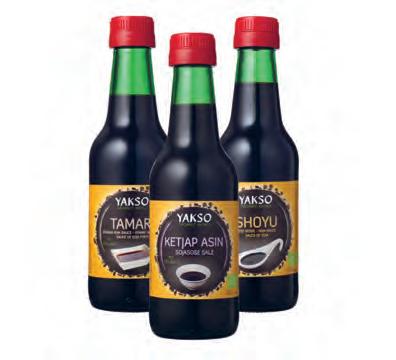
Delicious, organic cooking ingredients designed to help create authentic world food recipes at home, any time
As far as Yakso’s founders were concerned way back in 1993, these products were missing from their local stores. So they set out to design and create them from scratch, and since then the range has continued to blossom and develop into a selection spanning multiple cuisines,
countries and even continents.
From noodles and nasi goreng to tamari, tempeh and tofu, Yakso has it covered.
The word ‘yakso’ is of Japanese origin and means to ‘cleanse your body with food’. This fits with the company’s products and ethos perfectly, with all items made from only organic ingredients in a solar-powered factory in the Netherlands. A real treat for the senses!




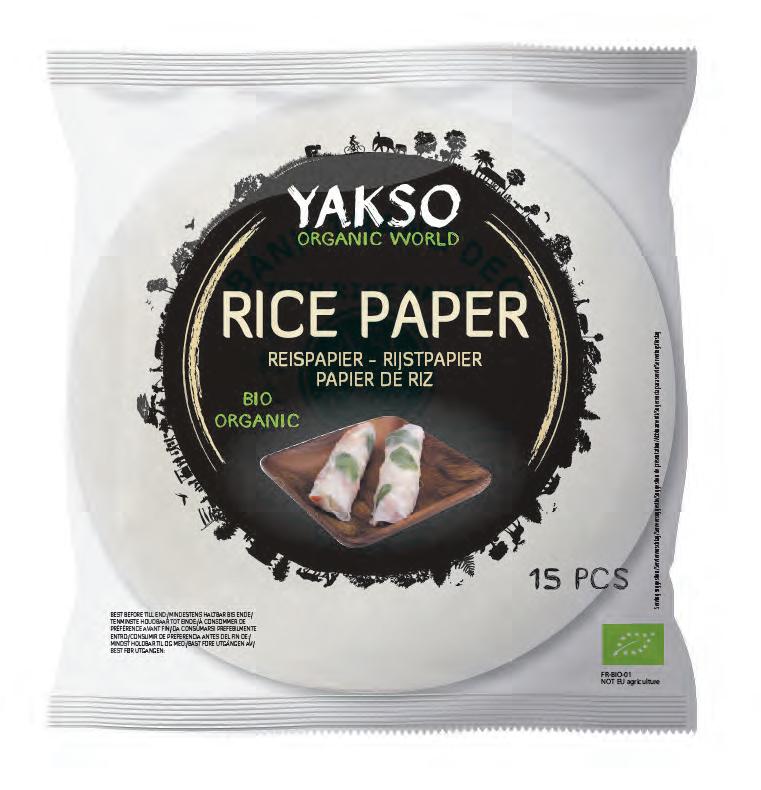
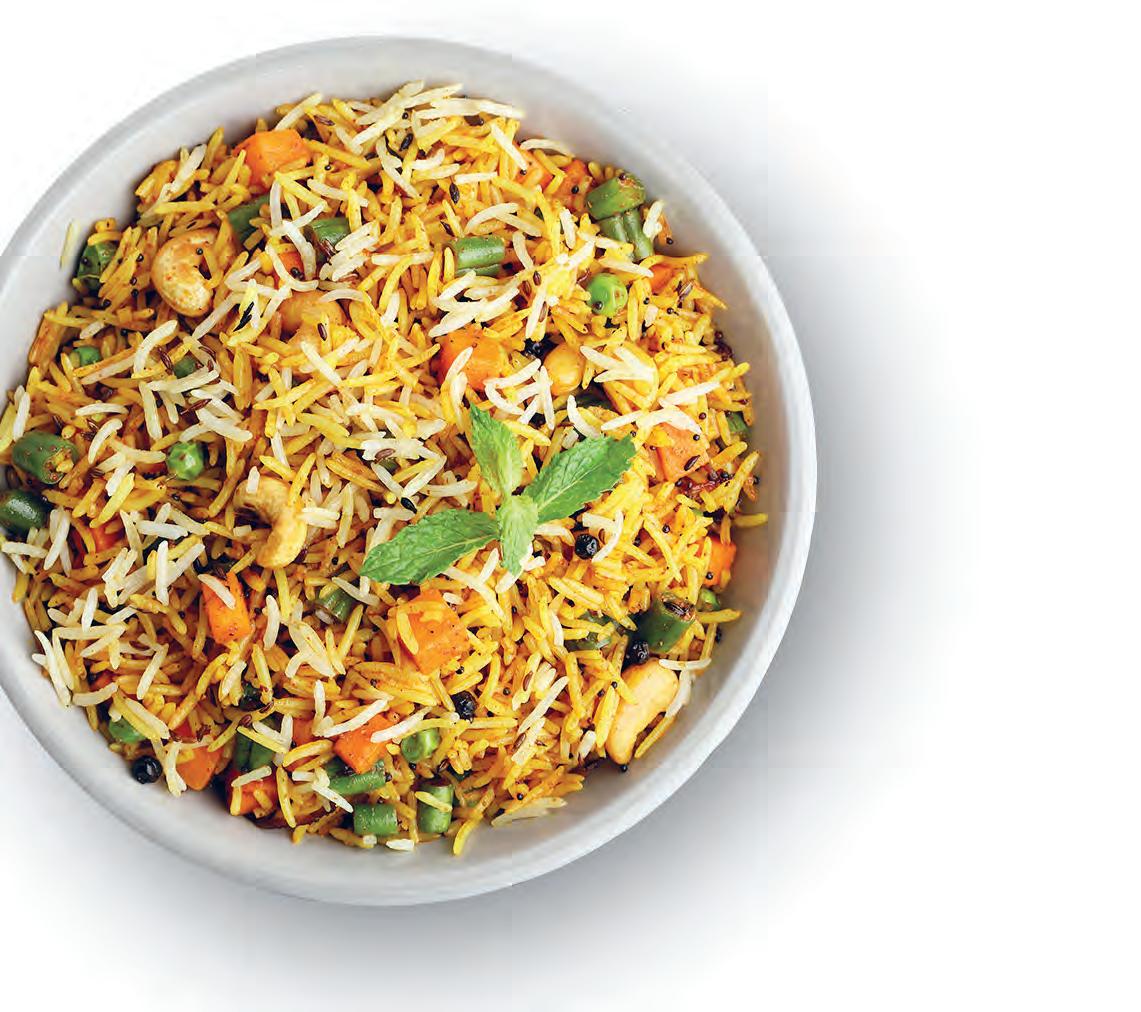
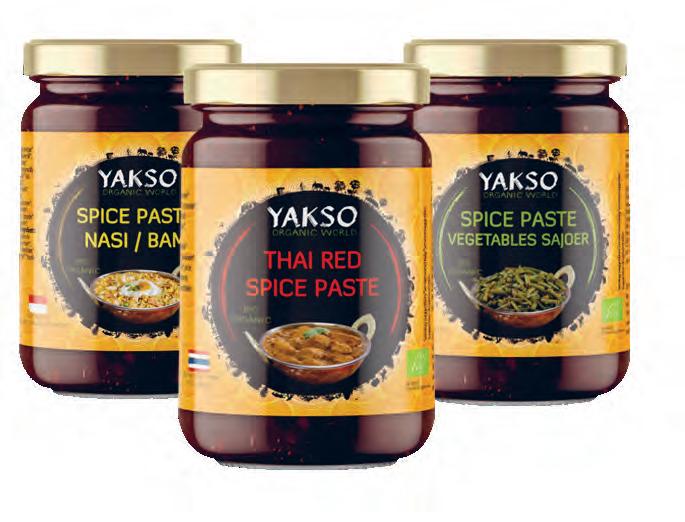





Upgrade your freezer space with bio inside, offering a vast range of high quality and convenient organic products at competitive prices.
Choose from a wide selection of organic fruit, vegetables, chopped herbs and convenience products, providing a one-stop shop for all your frozen needs.
Coming directly from the field, bio inside products are carefully selected from controlled organic farms before being gently deepfrozen immediately after harvest, preserving vital vitamins and minerals.
The handy packaging sizes and convenient format make these products ideal for the modern consumer.





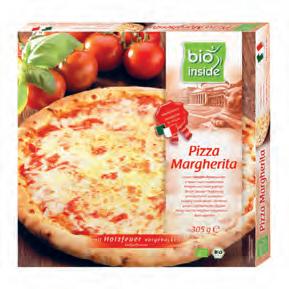

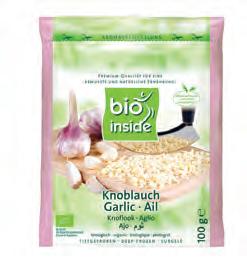
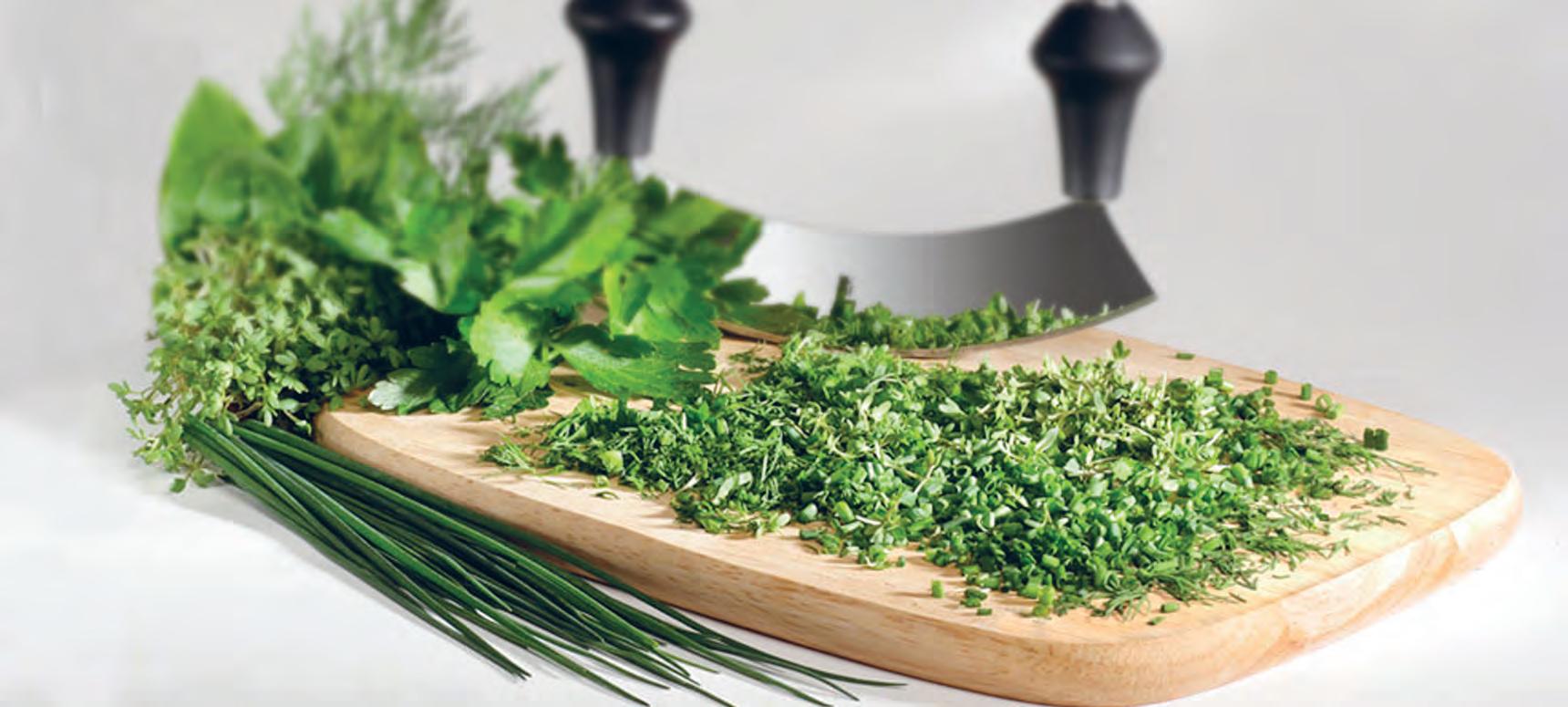

Fermented vegetables with active cultures, free from
German fermenter
Completeorganics believes healthy, functional and sustainable nutrition should not be at odds with taste and convenience.
So, in 2017 it started fermenting organic vegetables using traditional methods in its own Munich factory, creating delicious, plantbased health boosters full of microbiotic life.
Completeorganics offers eye-catching and premium natural products full of living
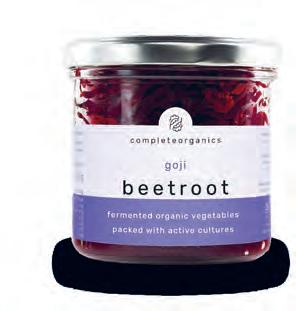
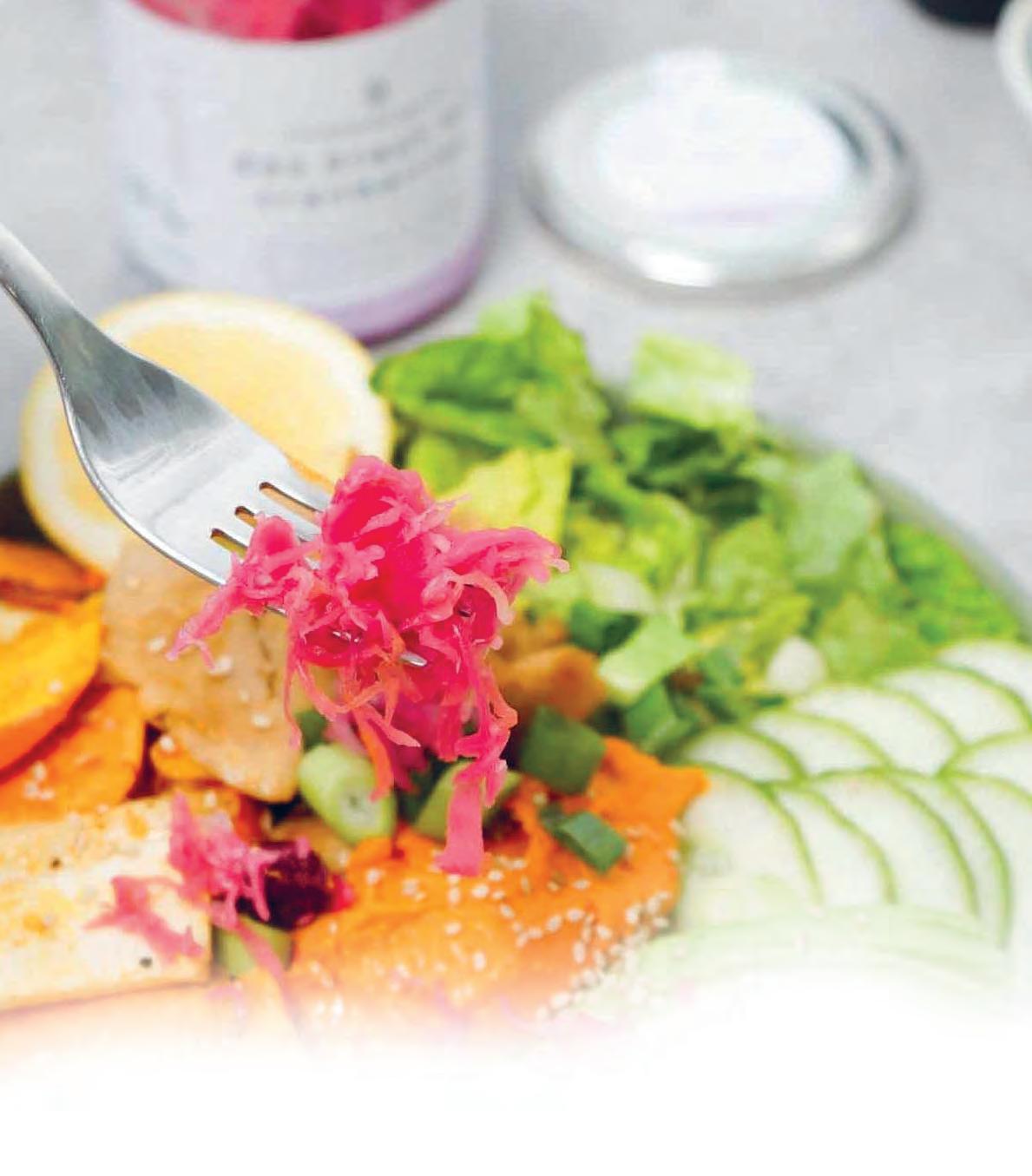
cultures, setting a conscious counter-design to common, highly processed foods. And with a conveninenty sized, plastic-free jar format, these products make it easy to be good to your wallet, body and the environment.
The brand’s range of nine tasty products provides a ferment for every occasion, with a remarkably high repeat purchase rate both on-shelf and via wholesale, setting the brand apart from the competition.
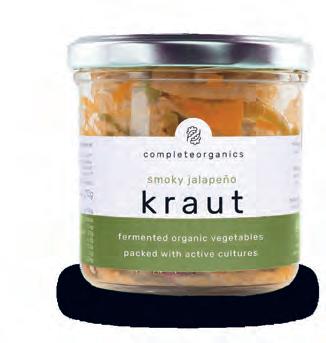
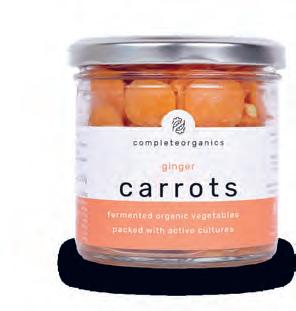




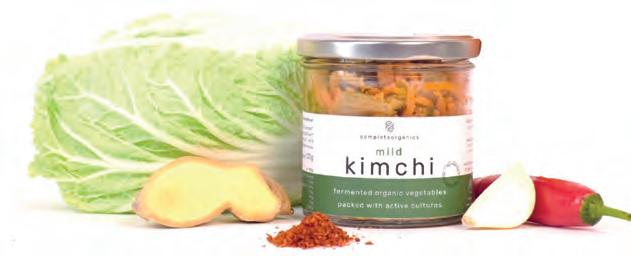
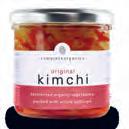

Ecomil has always been famed for its almond drinks, with the brand originally launched back in 1991, motivated by the idea of improving the almond milk recipe, a traditional drink in Spain.
Fast forward to 2024 and Ecomil is so much more than simply almonds, although these products – made in Spain using products harvested from dryland farming – remain at its
core, as do the environmental principles that underpin their cultivation.
Now the brand boasts an unrivalled range of plant-based milks from cashew to hemp, sugar-free to barista. And like in 1991, Ecomil remains driven by innovation, with a cleanlabel range of versatile cooking creams (Cuisine) proving increasingly popular alongside the first low-carb, keto-friendly and award-winning plantbased drink range.

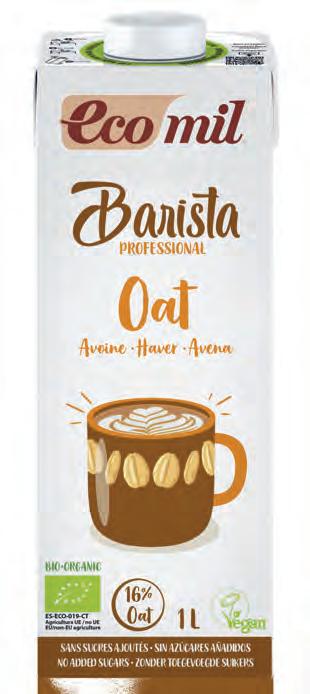


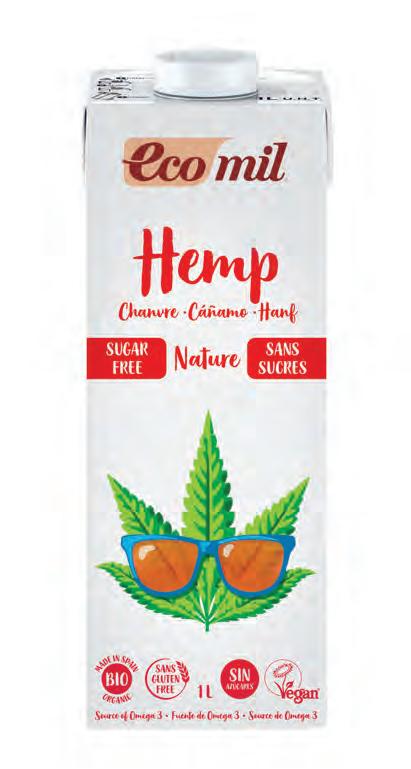




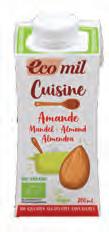

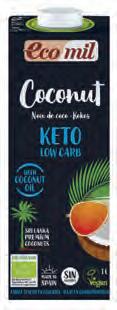
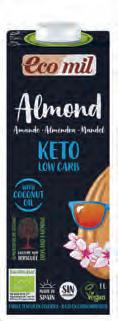

Natural Cool offers discerning consumers a comprehensive range of Demeter-certified and organic frozen products.
A real alternative for all those who value superior organic and/or biodynamic quality, with products ranging from chips and wedges to blueberries and peas.
For more than 25 years the company has been building close relationships with its farmers to achieve true
sustainability; accompanying and assisting them from harvesting to sales. With their biodynamic and ecological farming methods fostering a pronounced sensitivity to nature and the environment, the company and its farmers meet the highest standards of sustainability and quality. With a number of prices dropped for 2024, quality doesn’t always need to come with a large price tag.
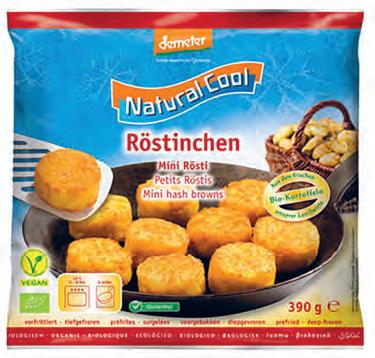
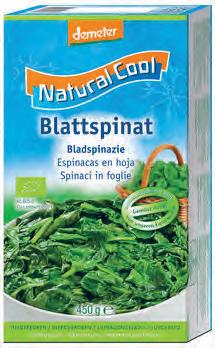






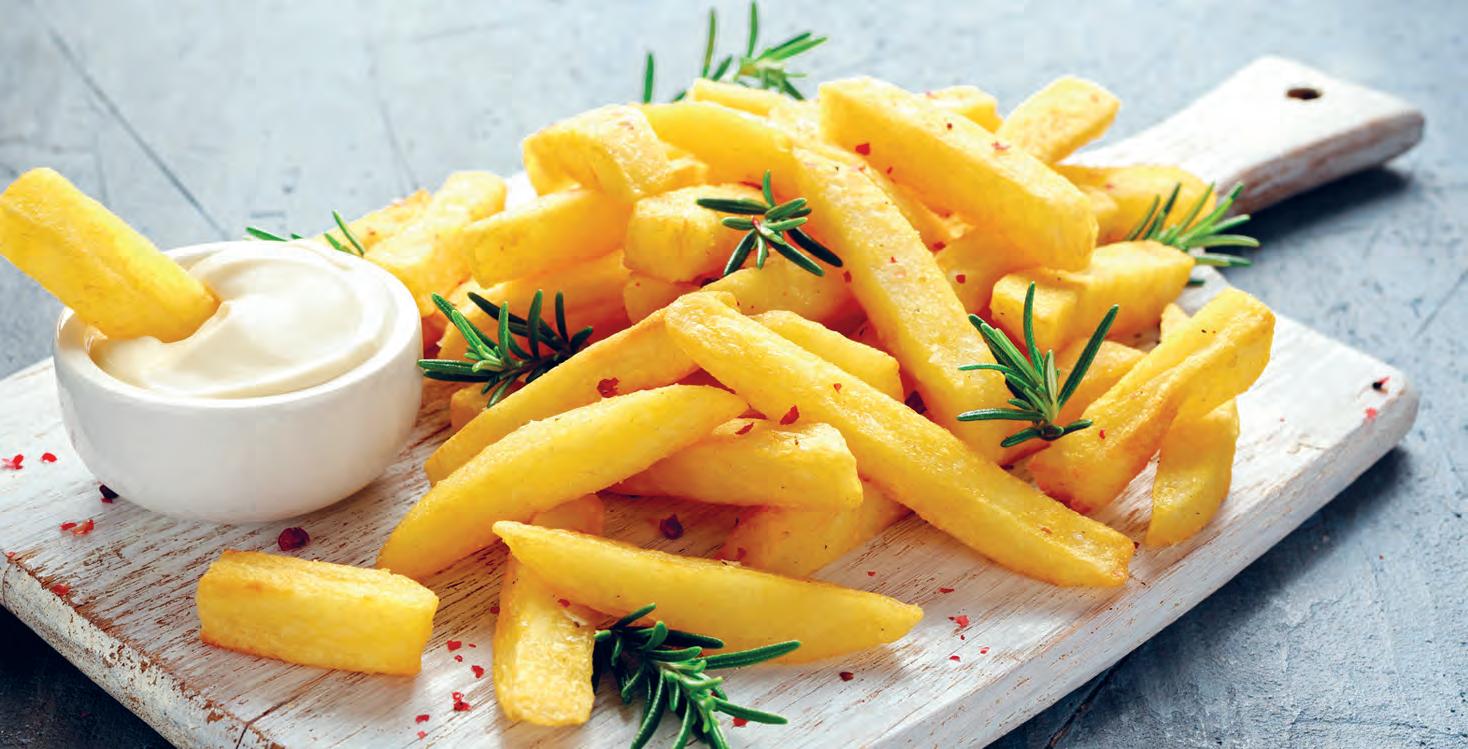
ATTITUDE
SunlyTM Sunscreen
Stick – SPF30, 60g





These plastic-free mineral SPF 30 sunscreen sticks are formulated to limit impact on coral reefs.
Practical and environmentally friendly, each product comes in a biodegradable cardboard tube and is easily applied without leaving white traces.
Also available in Unscented (pictured), Tropical and Orange Blossom
Product Highlights:
- Broad spectrum protection
- Plastic-free, vegan
- EWG Verified™
- Dermatologically tested
- Travel-friendly
RRP: £18.49
GEORGANICS
Zero Waste Mineral Toothpaste, 60ml
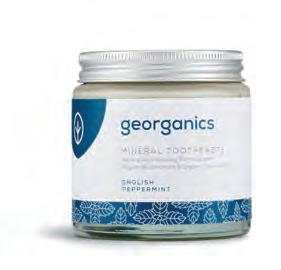




Georganics’ Mineral Toothpaste is packed with essential minerals to help teeth stay healthy and prevent tooth decay. Unlike conventional oral care products, this toothpaste is 100% natural, zero waste and free from any harmful chemicals.
Also in Peppermint (pictured), Activated Charcoal, Spearmint, Orange and Tea Tree
Product Highlights:
- UK-made & dentist-approved
- Free from fluoride, SLS & glycerine
- Zero-waste packaging
- Certified COSMOS Organic
- Cruelty-free, vegan
RRP: £6.90
IBIS RICE
Wholegrain Rice Pops, Sweetened, 275g





A breakfast for young conservation champions! IBIS farmers grow a rice variety known as Phka Rumdoul, voted as the best rice in the world.
This delicious brown jasmine rice is puffed to be light and crispy with all the nutrition of the bran. It is lightly sweetened with the sustainably harvested sap of the palm sugar tree.
Also available in Unsweetened
Product Highlights:
- Organic
- Gluten-free
- No additives or preservatives
- Wildlife-friendly
- Fairly-traded
RRP: £3.29
Choco Cookie Vegan Chocolate Bar, 80g
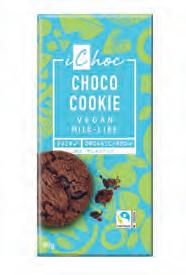




Destined to send cookie monsters wild! A heavenly mix of crunchy dark chocolate biscuit pieces in the smoothest M!LK chocolate. Who needs milk when you can achieve perfection without it? Great for satisfying sweet cravings while supporting Fairtrade and eco-conscious practices. Guiltfree indulgence!
Product Highlights:
- Organic
- Vegan ingredients
- Fairtrade cocoa from the Dominican Republic
- Eco-friendly
- Plastic-free packaging
RRP: £3.29
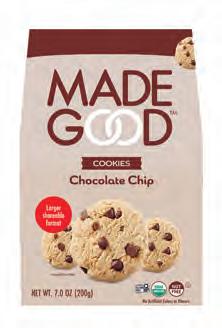




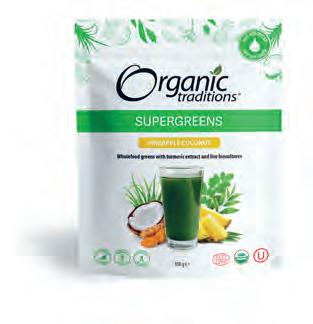


It’s hard to argue with a chocolate chip cookie, especially when it’s organic, vegan, nutfree, and manufactured by a B Corp which prides itself on the highest quality standards.
MadeGood Chocolate Chip Cookies have all the crunch and all the chips you would expect, while also containing additional nutrients from vegetable extracts for guilt-free snacking.
Easy to pick up due to bright packaging, but hard to put down thanks to a sweet, moreish taste. That’s the quality you know from this highly thoughtful snack brand.
Also available in Vanilla
Product Highlights:
- Organic
- Vegan, kosher
- Free from 9 common allergens
- Additional nutrients
- Triple A Standard B Corp
RRP: £5.99
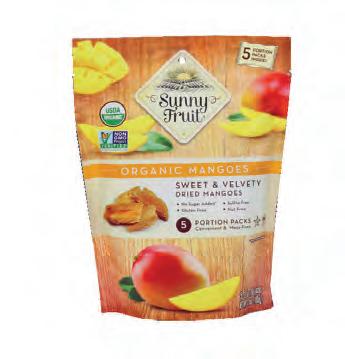
TRAFO
Coconut Oil Fried Potato Chips, 100g
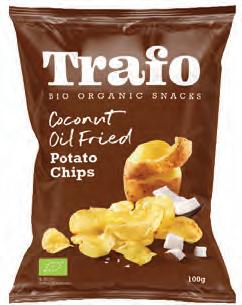


A unique green superfood blend of nutrient-dense products including alfalfa, barley, wheat, Kamut, oat grass, chlorella, spirulina, moringa, matcha, acacia fibre and turmeric extract.
With over 1 billion heat- and shelf-stable live bio cultures per serving, this product is high in fibre, vitamins A, B6, B12, iron, thiamin, riboflavin, calcium and magnesium.
With the addition of delicately sweet organic pineapple and coconut, it’s perfect for smoothies or just with water.
Also available in Original, Pear and Cucumber & Melon
Product Highlights:
- 100% organic
- Kosher, dairy, gluten-free
- Excellent source of vitamins & minerals
- Packed full of live bio cultures
- Long shelf-life
RRP: £14.99




Sweet and velvety, Sunny Fruit Organic Dried Mangoes are an ideal natural snack for all.
Meticulously dried for ideal sweetness, this particular variety of mango is an excellent source of fibre, antioxidants, potassium, calcium, iron and magnesium.
The new 5-serve multipacks – launched to complement the single-serves already available – provide a convenient and healthy on-the-go option to satisfy a sweet tooth.
Great for lunchboxes, these versatile dried mangoes also make for a delicious addition to platters, granola, yogurt or in smoothies.
Product Highlights:
- Organic
- All-natural ingredients
- Wide range of SKUs
- Convenient multipack format
- Single-serve also available
RRP: £5.99




Trafo’s organic Coconut Oil Fried Potato Chips are a delicious and healthier alternative to traditional potato chips.
Made from the highest quality organic potatoes and fried in coconut oil, these crisps are a great source of healthy fats and nutrients. They’re also vegan, gluten-, lactose- and sugar-free, as well as free from artificial additives and preservatives, making them a great choice for those with many forms of dietary restrictions.
Not only that, they taste fantastic, with the uniquely rich flavour profile provided by the coconut oil balanced nicely with a light pinch of sea salt.
Product Highlights:
- Organic
- Vegan
- Gluten-, lactose- & sugar-free
- Unique flavour profile
- Perfect alternative for those with dietary restrictions
RRP: £3.79
VIVANI Fine Dark with 92% Cocoa & Coconut Blossom Sugar, 80g





The 92% is by no means a new product, having been popular in the UK for a decade.
This popularity continues to grow due to its delicate and refined taste which is unusual in bars of such high cocoa content and is thanks to the high-quality Panamanian cocoa, as well as the light toffee balance provided by the coconut blossom sugar.
What is new, however, is the brand’s recent award for its sustainability practices in the midst of a global cocoa crises. The 92% encapsulates this commitment perfectly, with its single-origin, fairlytraded cocoa a sign of Vivani’s wider project.
Product Highlights:
- Organic
- Rainforest Alliance cocoa
- Clean-label
- Single-origin
- Established brand
RRP: £3.99





Yakso is back with new and improved recipes for its range of Asian-inspired cooking sauces.
The famous sweet & sour is given a subtle twist here, with a slight spiciness which really enhances the flavours within.
This product is a perfect mid-week convenience; simply add protein and/or vegetables to a wok or frying pan until cooked, then add your Yakso sauce, simmer and serve. There are 3 to 4 portions in each 240ml jar.
Other varieties available include Thai Curry, Sweet Soy and Coconut & Lemongrass
Product Highlights:
- Organic
- New and improved recipe
- No ar tificial additives or preservatives
- Satisfying flavours and textures
- Vegan
RRP: £3.75
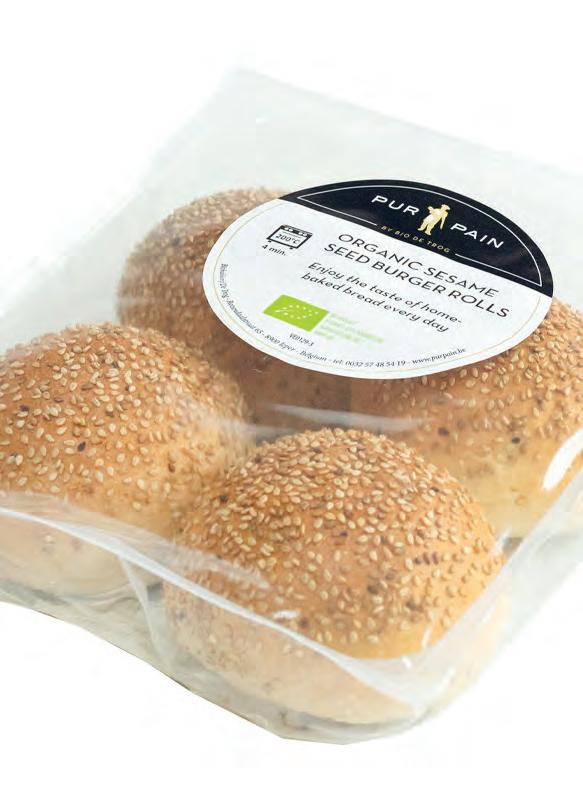




Artisanally crafted in Belgium’s only carbon-neutral bakery, these Organic Sesame Burger Rolls provide a sweet taste and delicate texture, enhanced by the addition of sesame seeds on top.
The products are distributed in MAP packaging to provide ultimate convenience for both retailer and consumer. The format provides a shelf-life on production of around 50 days, while the par-baked nature means the rolls can be enjoyed fresh from the oven in just four minutes.
Aside from the convenient format, the product itself has to be tasted to be believed and is a perfect addition to any
to picnics!
Product Highlights:
- Organic
- High quality product
- Free from additives
- Long-life MAP packaging
- Carbon-neutral bakery
RRP: £3.99
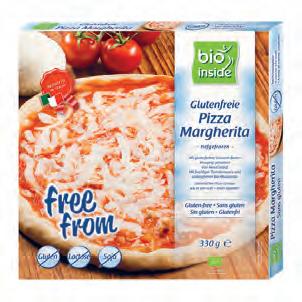




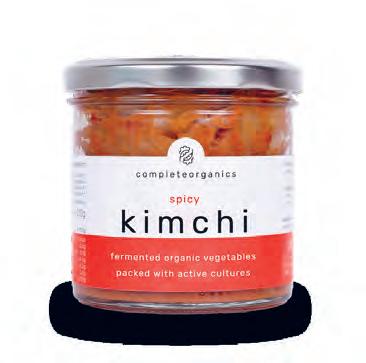




This gluten-free variety of Pizza Margherita – part of an initial range of organic, woodfired, stone-baked pizzas – is authentically handmade in Italy and frozen for convenience.
What sets bio inside pizza apart is the light base which is created by allowing the dough to rise for 24 hours before being traditionally baked in a woodfired stone oven.
This pizza is organic and completely free from additives. It is made using wholegrain rice flour, tomato sauce and lactosefree mozzarella cheese, making it the perfect choice for anyone with dietary restrictions.
Product Highlights:
- Organic
- All-natural ingredients
- Free from gluten, lactose and soya
- Handmade in Italy
- Other are SKUs available
RRP: £6.99
Spicy, crunchy and packed full of umami, Completeorganics Spicy Kimchi is everything you would want from a traditional kimchi at a competitive price point.
Like every Completeorganics product, this is made from 100% organic vegetables, all sourced as close to the brand’s Munich factory as possible. It is traditionally fermented, free of additives and unpasteurized, so is bursting with active cultures.
With its rich, smoky spice and moreish flavour profile, this kimchi pairs particularly well with rice, potatoes or cheese, and refines any burger or sandwich.
Product Highlights:
- Organic
- Naturally fermented
- Live and unpasteurized
- Free from additives or added sugar
- Plastic-free packaging
RRP: £6.99
via CLF Distribution
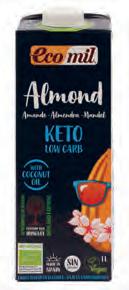




Ecomil has always been famed for its almond drinks, and this latest offering stays true to those roots.
This keto drink – awarded Best Special Diet Product at Natural & Organic Products Europe – features a high-quality almond base with added coconut oil to increase the fat content and provide a rich, velvety taste profile.
It is sugar-, gluten- and soya-free, and with the use of Spanish almonds cultivated using dryland farming methods, provides a sustainable almond choice and peace of mind for consumers.
Also available in coconut
Product Highlights:
- Award-winning
- Organic
- Keto-friendly
- Sugar-free
- Almonds from dryland farming
RRP: £3.49
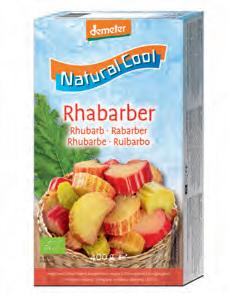




Natural Cool has been a staple in health store freezers for years, with the brand trusted for its high quality organic and biodynamic products and unwavering commitment to the independent trade.
Its Demeter range of cardboard-packaged, high quality, biodynamic fruits continues to grow, with the latest release being a frozen Natural Cool Rhubarb, sourced from the Netherlands and without added sugar.
Wickedly versatile, the quality of this rhubarb really shines through. Perfect for compotes, desserts, porridge and more.
Product Highlights:
- Demeter/biodynamic
- Hand-picked
- No additives or preservatives
- Convenient format
- Shock-frozen to preserve important nutrients
RRP: £3.99
In a new series called Have Your Say we’re canvassing our readership to hear your views on some of the major issues shaping the natural and organic industry
Organic vs B Corp Is CBD dead?
To offer your thoughts on this month’s topics, simply scan the QR codes and answer the questions posed. We’ll be summarizing the results in the autumn edit of Natural Brands Magazine

With over a decade in publishing, Rosie is an experienced editor, presenter and awards judge with a special interest in organic food, green beauty and sustainable living.

Experienced in comms and strategy, Tom oversees publishing. A former teacher, he uses his passion for education to spread the organic message and connect buyers with cutting-edge natural products.

Bringing 25 years of publishing and event experience to the team, Dom has spent two decades helping healthy, sustainable brands promote themselves to the industry and reach the shelves of leading retailers.

Jane has over 25 years’ experience in trade publishing, most recently focusing on natural and organic food and drink, skincare, sustainability and the environment.

Formerly a retail buyer in F&B, Martin now heads up Natural Brands’ commercial arm, helping natural and organic brands maximize their industry reach and achieve their UK growth goals.

Coming from a ten-year career in retail, Natalie manages the Buyers’ Club and Sample Box scheme, introducing health stores buyers to the latest new products each quarter.
Natural Brands Magazine exists to support independent retail by publishing news, insights, interviews, features and product launches within the natural and organic industry.
Views expressed by contributors are their own and do not necessarily reflect the views of our publisher or editor.
Contributors operate independently of advertising; content is published solely on its editorial value.
EDITORIAL
Editor: Rosie Greenaway editor@naturalbrands.co.uk
Sub-editor: Jane Wolfe jane@naturalbrands.co.uk
ADVERTISING
Interested in discussing advertising opportunities?
Partnerships manager: Dom Roberjot dom@naturalbrands.co.uk
Publisher: Tom Smart tom@naturalbrands.co.uk
DESIGN
Designer: Stuart Moody h3opublishing@gmail.com
PRINTED BY Cambrian Printers, Aberystwyth
PUBLISHED BY Natural Brands UK 20-22 Wenlock Road London N1 7GU
© Natural Brands UK 2024 ISSN 3033-4012
freepik.com

